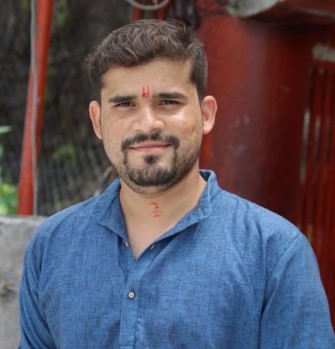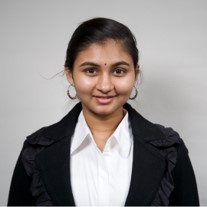Speaker list : Global South Academic Conclave on WASH and Climate linkages
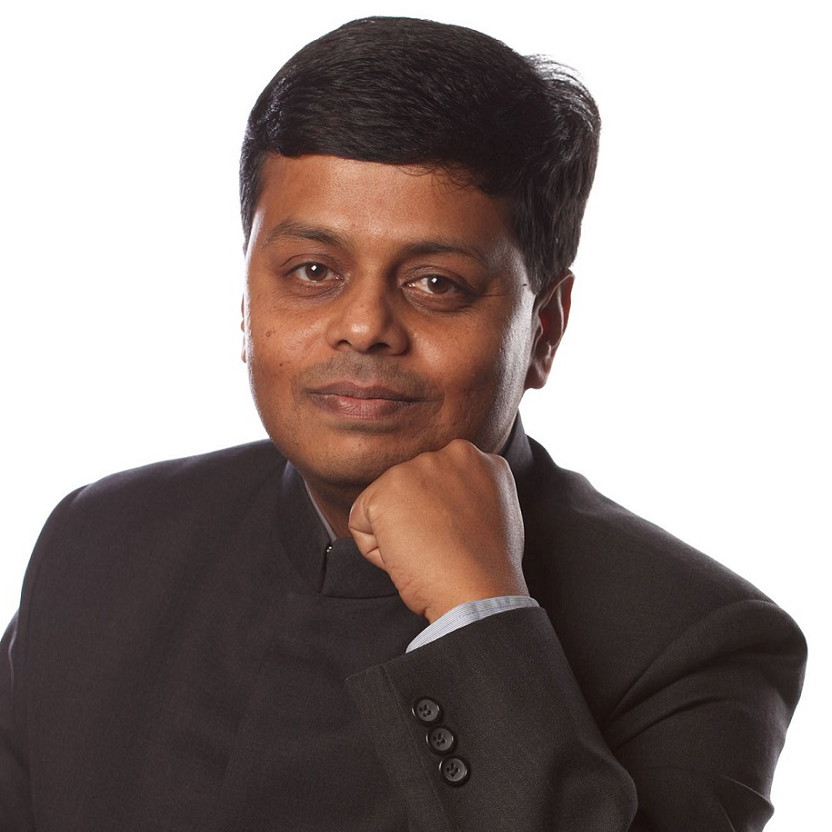
Aromar Revi
Director | Indian Institute for Human Settlements
Aromar Revi is the founding Director of the Indian Institute for Human Settlements (IIHS). He is an alumnus of IIT-Delhi and the Law and Management schools of the University of Delhi. He is a polymath, global practice and thought leader, educator and institution builder with 40 years of local to global interdisciplinary experience.
Aromar is one of the world’s leading experts on global environmental change, especially climate change. He is a Coordinating Lead Author (CLA) of the seminal 2018 IPCC Special Report on Global Warming of 1.5°C (SR15), CLA of the synthesis chapter on Climate Resilient Development Pathways (CRD) of the IPCC Working Group Assessment Report 6 (AR6) on Impacts, Adaptation and Vulnerability and member of the Core Writing Team (CWT) of the 2023 IPCC AR6 Synthesis Report (SYR) that considers policy priorities for Climate Action between now and 2030-2040. He was earlier a CLA of the IPCC Assessment Report 5 (AR5) on Urban Areas, that established the role of cities and regions in addressing climate risks in 2014.
Aromar has worked extensively to bring the global urban and climate change agendas together. He was a co-lead of the independent four report Summary for Urban Policymakers series of the IPCC AR6 cycle on Climate Science, Adaptation and Mitigation.
Aromar is a member of key international Commissions on Water, Climate change, Health, Sustainable Development and Cities. He is a Commissioner and Lead Expert of the Global Commission on the Economics of Water that presented its first report to the UN Global Conference on Water 2023.
Aromar has led over 235 major practice, consulting and research assignments in India and abroad; helped structure, design and review development investments of over $ 15 billion; has deep governance, institutional development, management and implementation experience, across public, private, civil society and academic institutions; is one of the top-10 cited scholars in the world across multiple fields (urban, infrastructure, climate adaptation, disaster risk reduction and sustainable development) and has lectured and taught at 100 of the world’s leading universities and think tanks across six continents.
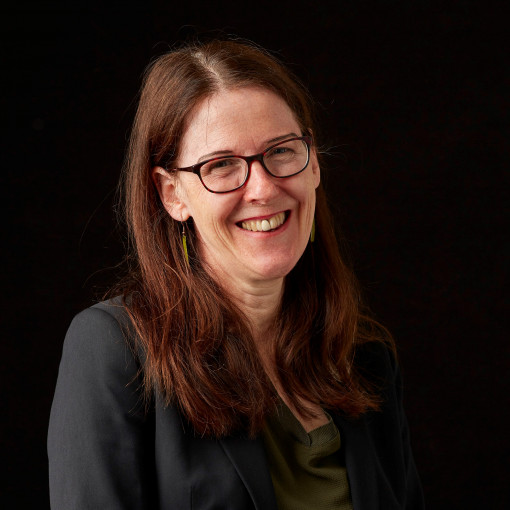
Barbara Evans
Chair - Public Health Engineering, School of Civil Engineering, University of Leeds
Professor Barbara Evans holds the chair in Public Health Engineering in the School of Civil Engineering at the University of Leeds. Her work is centred on the delivery of the United Nations’ Sustainable Development Goal 6, with a particular focus on resilient and equitable sanitation services.
Since joining the University in 2009 Barbara has led the establishment of the cross-faculty MSc in Water, Sanitation and Health Engineering which is jointly taught with the Nuffield School of International Health. She is also Director of the EPSRC Centre for Doctoral Training in Water and Waste Infrastructure and Services Engineered for Resilience.
After graduating from Leeds with a BEng (Hons) in Civil Engineering (1987) Professor Evans worked as an engineering consultant in Sudan, Pakistan and India. In 1994 she won a scholarship to study for an MSc in Development Studies from the London School of Ecnomics, passing with distinction in 1995. Her studies focused on the political economy of urban sanitation for poor and marginalised communities. Thereafter she worked at the World Bank Water and Sanitation Programme for seven years and was responsible for a regional programme of support to government and civil society in South Asia, delivering capacity building, research and programme support in urban basic services. She also worked on several groundbreaking rural water supply and sanitation projects, in particular in the Hamalayan regions of Uttar Pradesh (now Uttaranchal). Other work in this period included leading the development of the post-conflict reconstruction programme for urban sanitation and water supplies in Afghanistan. After leaving the Bank in 2002 Barbara worked as an independent consultant, working with UNICEF, the World Bank, the World Health Organisation, WaterAid, and for the governments of Vietnam, Bolivia and Bangladesh. She was also active and instrumental in delivery of several regional ministerial sanitation conferences.
Barbara has travelled widely, lived for many years in South Asia, and has worked in over twenty countries. She is active in the global international development arena and is a member of the Strategic Advisory Group of the Joint Monitoring Programme for Water Supply and Sanitation (JMP) which reports progress against the Sustainable Development Goals for Water. She is a member of the Royal Academy of Engineers International Committee and an Advisor to the Container-based Sanitation Alliance."
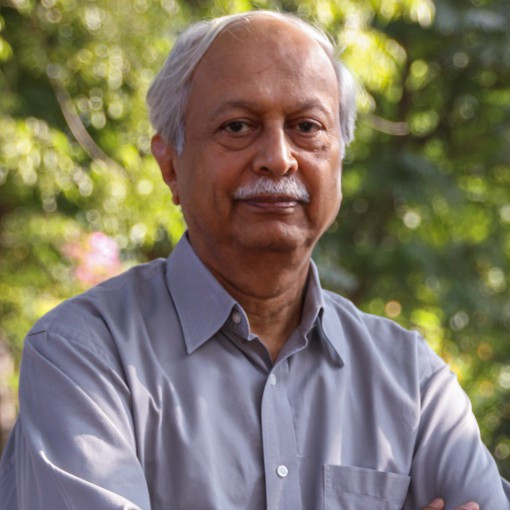
Dinesh Mehta
CWAS, CRFD, CEPT University
Dinesh Mehta is a Professor Emeritus and Head at the Center for Water and Sanitation. He has over four decades of experience in urban policy, urban planning and management, in Asia and Africa.
Dr Mehta was involved in global urban policy and dialogue as the head of Urban Management Programme at the UN-Habitat headquarters in Nairobi. He also contributed significantly to urban policy formulation by Government of India, while he was a Director of the National Institute of Urban Affairs, New Delhi, India. Dr Mehta was also the Director of School of Planning at CEPT University, Ahmedabad, India during 1986-1992. In 2013, Professor Mehta was awarded International Water Association’s Development Solutions Award in recognition of his contribution to research and practice in Water. In 2017 became a fellow of IWA and Chair of their specialist group on water and sanitation in developing countries
Dr. Mehta has a PhD from University of Pennsylvania, a Master’s in City and Regional Planning from Harvard University, and a Bachelor of Technology in Civil Engineering, IIT, Madras, India.
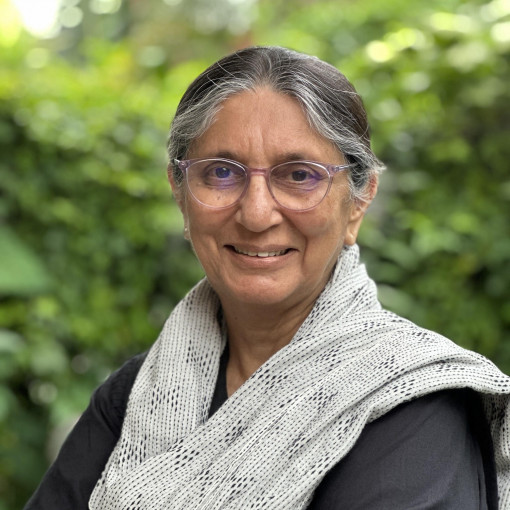
Meera Mehta
CWAS, CRFD, CEPT University
Meera Mehta is CRDF Professor Emeritus and the Head of the Center for Water and Sanitation. She also contributes to courses at the Faculty of Planning, CEPT University.
She has over 45 years of experience in water, urban development, and infrastructure finance. Her experience spans across countries in Asia and Sub-Saharan Africa. She served as the Director of the School of Planning at CEPT University before joining USAID’s FIRE-D Project in India, and later the World Bank and its Water and Sanitation Program in Africa. She has consulted for many national and international agencies, including UNICEF, World Bank, ADB, WaterAid, HIC, Government of the Netherlands. She has written widely and published papers on housing, urban development, water and sanitation, and financing.
She is a member of the steering committee of the National Faecal Sludge and Septage Management (NFSSM) Alliance. She is a member of the International Advisory Board for the UKRI and GCRF funded project for Water Security and Sustainable Development Hub, University of Newcastle, since 2020. She is a member of the Project Advisory Board for the USAID funded Global project on “Urban resilience by building partnerships and applying new evidence in water, sanitation and Hygiene (Urban WASH)” – 2022 to 2026.
She was a board member at IRC, a global not-for-profit organization driving resilient WASH systems, and on the Steering Committee of the Stockholm-based inter-governmental organization Global Water Partnership (GWP). She was a member of the working group of the WHO-UNICEF for post-2015 deliberations for water supply and sanitation. She has been a member of various national and international Technical Committees related to water and sanitation. She was one of the Editors for the IWA’s WASH development journal.
She has studied Architecture and Urban Planning and has a PhD in Economics.

Brian Arbogast
Director - Water, Sanitation & Hygiene | Bill and Melinda Gates Foundation (BMGF)
Brian Arbogast leads the foundation’s efforts to bring new ways to deliver sustainable sanitation services and products to the over 3.5 billion people who need them.
Arbogast joined the foundation in 2013. He was a Corporate Vice President at Microsoft Corporation from 2000-2010, leading an international portfolio of R&D projects. From 2010-2013, he concentrated on cleantech and international development, driving market solutions to some of the world’s most pressing challenges. He served as a Senior Advisor with The Boston Consulting Group and as a board member of Water1st International, the Northwest Energy Angels (now E8 Angels), and the Progress Alliance of Washington.
Arbogast received his Bachelor of Mathematics in Computer Science from the University of Waterloo and a Certificate in Sustainable Business from the Bainbridge Graduate Institute (now Presidio Graduate School).
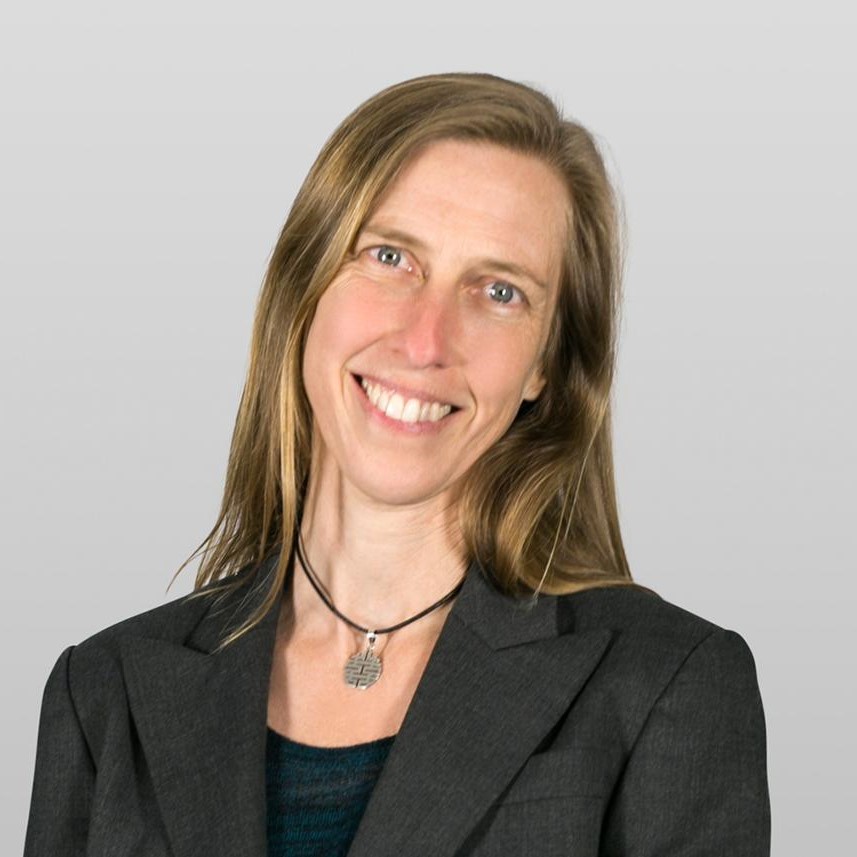
Juliet Willets
University of Technology Sydney
Professor Juliet Willetts is Research Director at University of Technology Sydney’s Institute for Sustainable Futures (UTS-ISF). She leads applied research to inform water and sanitation policy and practice in Asia and the Pacific, including urban sanitation, rural sanitation and rural water-supply. Her contributions cover climate change, governance, technical solutions, gender equality and sector monitoring, partnering with governments, UN agencies, bilateral, multilateral and civil society organisations. She has been recognised by multiple awards, including Australian Financial Reviews’ 100 Women of Influence. She holds a PhD from University of NSW in Environmental Engineering and is widely published with more than 130 peer-reviewed articles
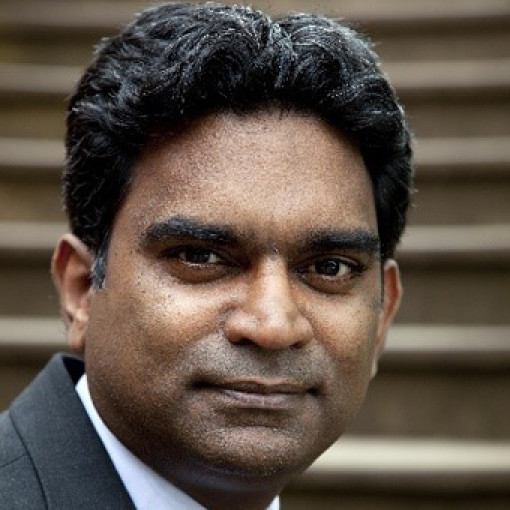
Kalanithy Vairavamoorthy
IWA
Kala Vairavamoorthy is an internationally recognized water resource management expert, with a particular interest in urban water issues. He combines a strong engineering background with practical international experience. He has published extensively and has a strong international profile working closely with the World Bank, UN-Habitat, UNESCO, GWP, SIWI, ADB and the EU. He has led several urban water management projects for the EU, World Bank, African Development Bank and DFID. He is currently a member of the ADB’s Water Advisory Group. He joined the IWA from the International Water Management Institute (IWMI), where he was the Deputy Director General (DDG). He was the Founding Dean of the Patel College of Global Sustainability and a tenured Professor in the Department of Civil and Environmental Engineering, at the University of South Florida. Prior to that he was a full Professor and Chair of Water Engineering at the University of Birmingham, UK, and Professor and Head of Core of Sustainable Urban Water Systems at UNESCO-IHE. He is currently Professor (adjunct) at the Indian Institute of Technology, Madras (IITM). Kala Vairavamoorthy has a PhD and MSc in Environmental Engineering from Imperial College, London, UK and a BSc(Hons) in Civil Engineering from King’s College, London. He is also a Chartered Engineer and a Fellow of the Institution of Civil Engineers (UK).
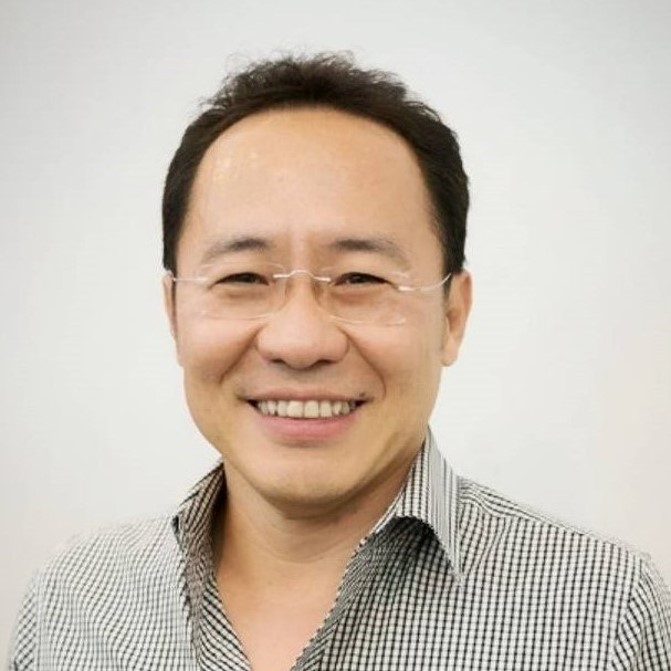
Thammarat Koottatep
Asian Institute of Technology (AIT)
Thammarat Koottatep is a Professor of the Environmental Engineering Management program and Co-Director of Global Water and Sanitation Center of the Asian Institute of Technology (AIT), Thailand. He is an internationally recognized professional on fecal sludge management, sanitation systems, nature-based solutions for waste and wastewater management, wastewater treatment technology, reinventing toilet technology and marine plastic pollution. His major scholarly contributions include publications of more than 90+ refereed international journal papers, 8 books, and 9 book chapters. He has invented sanitation/toilet technologies, one of which is patented to his credits and several are filing. He has recently developed and serving as coordinator of 1-year Master degree programs in “Marine Plastics Abatement” and “Regenerative Sanitation”. He has secured significant funded projects including, research and training grants, and most notably, the Bill & Belinda Gates Foundation grants on “Decentralized Wastewater Management in Developing Countries: Design, Operation and Monitoring”. He has contributed significantly to capacity building in faecal sludge management, decentralized wastewater treatment systems and marine plastic pollution in Thailand and abroad, including capacity strengthening for policy makers. Since 2023, he is a member of the Advisory Board for IWA’s Inclusive Urban Sanitation initiative.
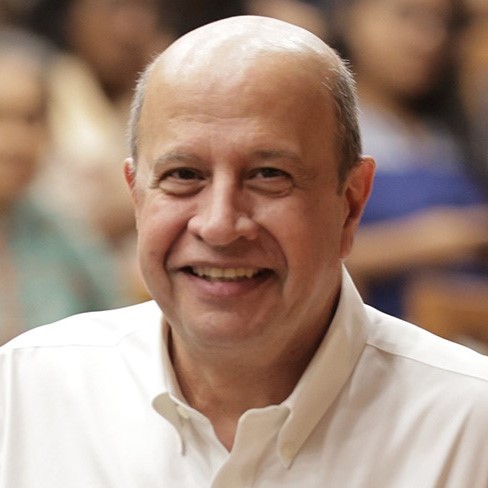
Barjor Mehta
CEPT University
Barjor Mehta, an architect and urban planner, is the World Bank’s Lead Urban Specialist for the East Asia & the Pacific Region based in Singapore. Prior to this, he was based in the World Bank’s country offices in China (2016-2020), India (2012-2016), and Tanzania (2009 – 2012). Prior to that he was in Washington DC between 2002 to 2009 from where he worked on urban development initiatives in Eastern and Southern Africa, South Asia as well as the Middle East and North Africa. Before joining the World Bank, Mr. Mehta served as Associate Professor of urban planning (1990-1995) and as Director of the School of Planning, CEPT (now called Faculty of Planning, CEPT University) from 1995 to 1997. Working with different organizations he has also lived and worked as a planner in Sri Lanka, Thailand, Bhutan, and the United States. Mr. Mehta holds a Diploma in Architecture from the School of Architecture, CEPT, and a Master’s in Human Settlements Planning from Asian Institute of Technology, Bangkok.
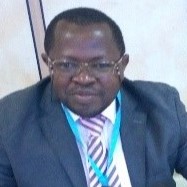
Celestin Defo
Higher Institute of Agriculture, Forestry, Water and Environment, University of Ebolowa, Cameroon
Prof Celestin Defo received the MSc in water engineering from the University of Dschang in Cameroon in 2006 and a Ph. D in water science and technology in 2016 at the Indian Agricultural Research Institute, New Delhi, India after being selected as Mwalimu Nyerere African Union Fellow. In 2010, he was recruited as an Assistant Lecturer at the School of Wood, Water and Natural Resources, Faculty of Agronomy and Agricultural Science, Ebolowa Branch of the University of Dschang and he is presently, Associate Professor at the University of Ebolowa, Cameroon. He is the author of more than thirty (30) articles published in peer review journals. He has contributed for more than 20 national and international conferences. Since 2021, he is also part time Lecturer at the International Institute for Water and Environmental Engineering at Ouagadougou, Burkina Faso. His research interests cover several aspects across water engineering (water supply, water pollution, wastewater recycling and computer application).
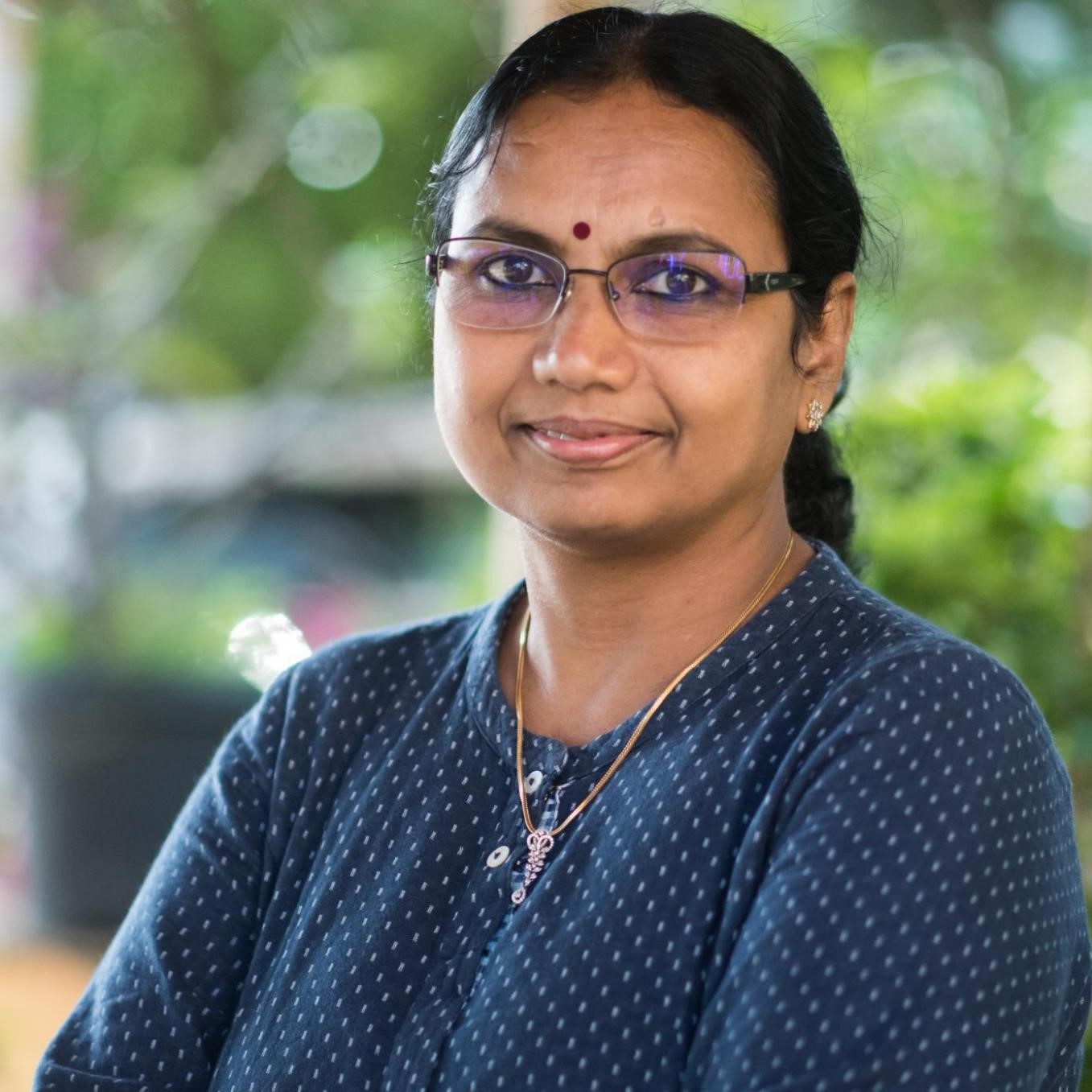
Ligy Philip
IIT Chennai
Prof. Ligy Philip is Nita and KG Ganapathi Institute Chair Professor in Department of Civil Engineering, IIT Madras. She is a Fellow of National Academy of Engineers (FNAE) and Fellow of Royal Society of Chemistry (FRSC). For more than two decades, she has been contributing significantly to advancing the knowledge in the area of Environmental Engineering, and for the betterment of society through teaching and field and industry-oriented projects. She has conducted high quality research on treatment of industrial effluents, bioremediation of contaminated soils and groundwater, novel processes for drinking water treatment, wastewater recycling, and sustainable management of waste. Technologies developed and patented by her have been utilized by several industries and organizations. She served as expert member in many state and national committees dealing with pollution control, water recycling, water supply etc. She is heading many research centers around water and sustainability and executed many socially relevant projects.
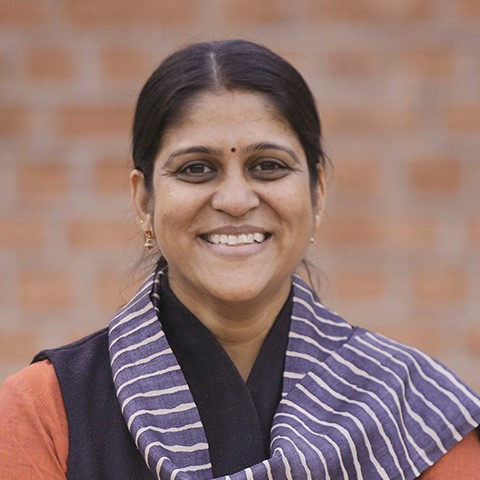
Mona Iyer
Faculty of Planning, CEPT University
Dr Mona Iyer heads the Faculty of Planning at CEPT University, Ahmedabad, and is a professor for the Master’s in Urban Infrastructure and major in WASH. Dr Iyer has over 25 years of experience in research, training and consultancy in water, sanitation and waste management sectors focussing on policy initiatives and project development mainly across Asia and the Pacific. She is a member of State and ULB-level committees on water, sanitation and waste management and has authored several publications on these subjects. She has been a recipient of the prestigious British Chevening Fellowship for Environment Management; the UK and Netherlands Fellowship Programme at IHE, Delft and UKNA.
She is Principal Investigator for an ongoing five year DST-NWO supported Indo -Dutch research project at CEPT -CWAS, titled “Water 4 Change”, focused on Urban Water Systems in selected secondary Indian cities. Besides other publications, she has authored sections of Global Waste Management Outlook, UNEP and State of Environment report for Gujarat. She was reviewer for the strategy document for "Mainstreaming river management into Master Plans", NIUA-NMCG. She has documented water systems of Dholavira, Angkor wat and Aurangabad and aspires to document the rich ancient water management systems – the ‘water heritage’ and learnings therefrom for present day urban planning.
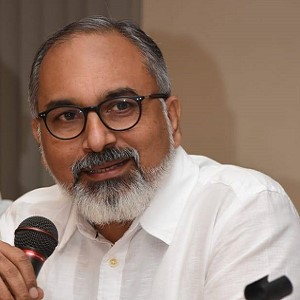
NC Narayan
IIT Mumbai
N C Narayanan works on water, sanitation and climate studies with a focus on the policy and governance aspects. At IIT Bombay, he currently heads the Ashank Desai Centre for Policy Studies that offers Masters and PhD programmes in public policy. He was also part of developing the Technology and Development program at CTARA and the interdisciplinary program on climate studies at IIT Bombay. He is an Adjunct Professor at the National Institute for Advanced Studies (NIAS), Bangalore; was a Fulbright Visiting Fellow at the University of California, Berkeley and Visiting Faculty at the Universities of Lausanne, Switzerland; and Monash, Australia. He has served as member of government committees including working groups of the National Planning Commission and Kerala State Planning Board. He started his career as a hydrogeologist and was part of an interdisciplinary team for land use planning through remote sensing studies. Later he received an M Phil in Applied Economics from the Jawaharlal Nehru University (CDS) and PhD in Development Studies (ISS, Erasmus University, The Netherlands). He has been faculty at the Institute of Rural Management Anand (IRMA), Senior Fellow and Executive Director of the South Asia Consortium for Water Resources Studies (Saci WATERs) Hyderabad. NC Narayanan’s work spans issues of local governance, technology and institutional choices in urban sanitation, drinking water reforms and governance, water conflicts, uncertainty and climate change, environmental governance, scaling up technology alternatives, development theory etc. His work is collaborative, interdisciplinary and grounded in empirical contexts, to trigger conversations between academia, society and policy, especially local governance institutions. Such an experiment (CANALPY) involving his students and volunteers for the past five years has now coalesced into a start-up – Technology and Governance Support (TAGS) Forum
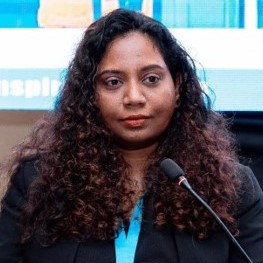
Praveena G
IIT Pallakad
Dr. Praveena Gangadharan is Assistant Professor at the Indian Institute of Technology Palakkad, India. Dr. Praveena is an expert in addressing complex challenges related to water quality, pollution control, and the intersection of engineering with public health. In addition to being an accomplished academic researcher, Dr. Praveena also holds a position as Project Director at the Global Sanitation Centre of Excellence (GSCOE), IIT Palakkad, a center that was established with the support from Principal Scientific Adviser to the Government of India. Her expertise in the area of sanitation has been instrumental in shaping up the Centre in line with its proposed motto of clean sanitation through non sewered sanitation technologies. She provides technical support and mentoring to start-ups in the sanitation area by associating with the Technology Innovation Foundation of IIT Palakkad (TECHIN). Dr. Praveena leads a dynamic research team dedicated to advancing solutions for pressing environmental issues. Her research in resource recovery from source-separated urine, innovative water and wastewater treatment technologies, etc., has appeared in numerous peer-reviewed journals. Dr. Praveena is a recipient of prestigious awards, including the Early Career Research (ECR) Award (2019), Magudam Award constituted by CNN News 18 (2017), Bhagyalakshmi and Krishna Iyengar Award (2017), Gandhian Young Technological Innovation Award (2015), and Women Scientists Scheme-A (WOS-A) fellowship from Department of Science and Technology, India. Dr. Praveena also leads community-driven sanitation initiatives in underserved regions, demonstrating her dedication to equity and inclusivity.
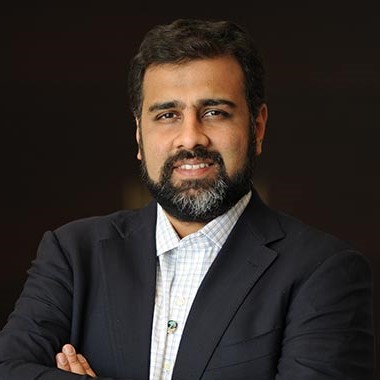
Punit Lalbhai
Arvind Limited
Punit Lalbhai is Vice-Chairman & Executive Director of Arvind Limited and leads Arvind's Advanced Materials, Engineering, and Agribusinesses. He also spearheads initiatives in sustainability, CSR, and Innovation at Arvind. He has an MBA from INSEAD and a Masters of Environmental Science from Yale University.
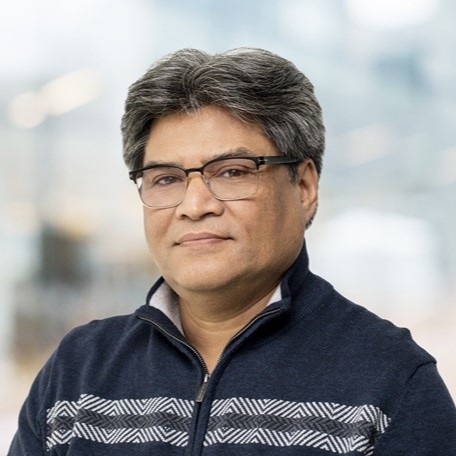
Roshan Shreshtha
Bill and Melinda Gates Foundation (BMGF)
Dr. Roshan Shrestha is the Deputy Director, Global Growth and Opportunity Division, Water, Sanitation and Hygiene (WSH) team of Bill & Melinda Gates Foundation. He also led the Urban Sanitation Market Initiative of the WSH that deals with scaling City Wide Inclusive Sanitation and Non-sewered Sanitation globally through demonstration, capacity building, advocacy as well as mobilizing resources from development banks and development partners. Dr. Shrestha spent seven years with UN-Habitat as a regional technical advisor (South Asia) for the water and sanitation program and Settlement Improvement Advisor for the slum upgrading program in Bangladesh before working at the Foundation.
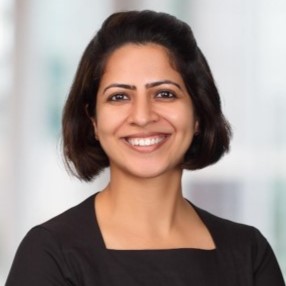
Sakshi Gudwani
Bill and Melinda Gates Foundation (BMGF)
Sakshi Gudwani works with the Bill and Melinda Gates Foundation as a Senior Program Officer and manages the Foundation’s Water, Sanitation & Hygiene (WSH) program in India. She has a diverse set of experiences that spans across private, public, and nonprofit sector work. She has been a development professional for over 10 years and focuses on policy & program design, institutional strengthening, and private sector engagement. At the Gates Foundation, Sakshi also worked with the Avahan program - Foundation’s flagship HIV prevention program in India. Before joining the Foundation, she worked with The Boston Consulting Group (BCG). At BCG, she was a part of multiple teams which counselled CEOs, government ministries and top management across industries on critical business problems. During this time, she worked across Social, Healthcare, Technology and Financial Services sectors. Sakshi has an engineering degree and is a management graduate of the Indian Institute of Management (IIM), Lucknow.
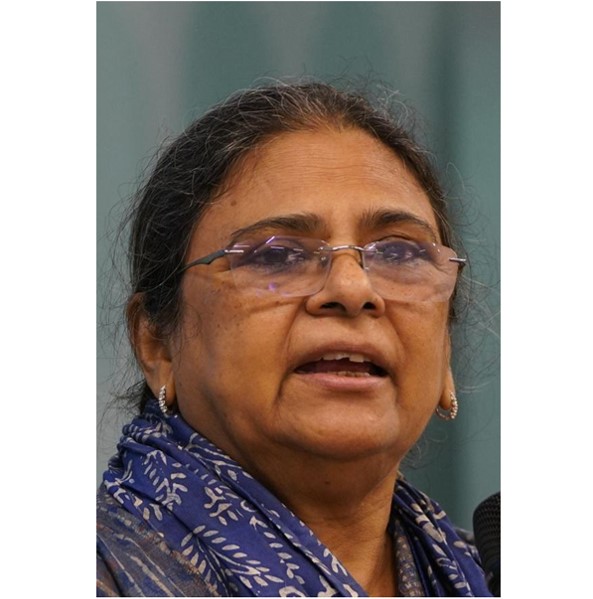
Sheela Patel
SPARC
Sheela Patel is the Director of SPARC, an NGO she founded in 1984, that has been working in alliance with two Community Based Organizations of the urban poor – National Slum Dwellers Federation and Mahila Milan, active in several cities across India. She is widely recognised – nationally and internationally – for seeking urgent attention to the issues of urban poverty, housing and infrastructure onto the radar of governments, bilateral and international agencies, foundations and other organizations. Sheela is currently a Global Ambassador for Race to Zero and Race to Resilience and in 2022 has initiated a global Campaign for Roof Over Our Heads (ROOH) led by women from informal settlements, working on issues of housing and infrastructure. Sheela is a founder amongst many of Slum Dwellers International, a transnational social movement of the urban poor in Asia, Africa and Latin America. Between 2018-2020 she was a Commissioner of the Commission for Adaptation to climate change and is currently a trustee of the International Institute or Environment and Development (IIED), a Member of the Club of Rome, and a board member of Climate-KIC. She received the Schwab Foundation Award in 2004, David Rockefeller Bridging Leadership Award in 2009, India’s highest civilian award, Padma Shri, in 2011 and the 2023 Lawrence C Nussdorf Urban Leadership Prize by PennIUR.
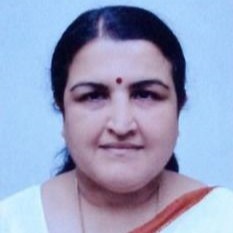
Sujatha Srikumar
Powertec Engineering Pvt Ltd
Ms. Sujatha Srikumar, Promoter Director of Powertec Engineering Pvt Ltd, is an electronics engineer and a management graduate from IIM-A, having 25 years of experience as an Institutional and Project finance expert in infrastructure privatisation and financing, and credit risk evaluation. She was formerly the Director at CRISIL(a subsidiary of Standard & Poor's, USA) and the Chief Operating Officer at IL&FS. Ms Srikumar has extensive experience in area of project development, project risk evaluation, resource raising for projects, structuring of payment security mechanisms, financial engineering for innovative credit enhancement and credit evaluation of infrastructure projects and entities. Ms Srikumar was responsible for introducing and facilitating municipal bond market development in India.
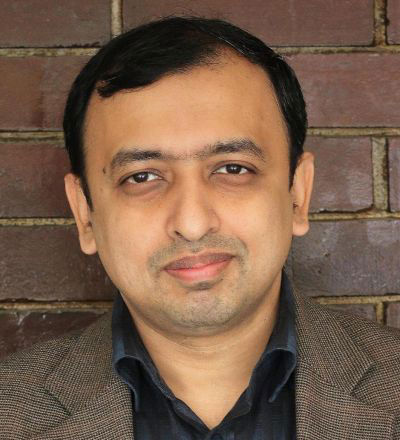
Tanvir Ahmed
ITN (BUET)
Dr. Tanvir Ahmed received his Bachelors and Masters degree in Civil Engineering from BUET in 2003 and 2005, respectively and PhD from Massachusetts Institute of Technology (MIT), USA in 2011. He has been a faculty of BUET since 2003 and currently working as an Associate Professor in the Department of Civil Engineering. His research interest broadly encompasses environmental modeling and health risk assessment of environmental contaminants and authored several papers in distinguished journals and conferences. He is involved in several national and international projects as a consultant and EIA specialist. Dr. Ahmed received a number of awards in recognition for his excellence in academic achievements and teaching. These include The Prime Minister’s Gold Medal in 1994 for securing the 1st merit position in the national SSC exam, Malik Akram Hossain Gold Medal in 2003 and Dean’s award for academic excellence as a civil engineering student. He received the Schoettler Fellowship and Martin Fellowship for Sustainability while pursuing his PhD at MIT and was awarded the Maseeh Award for excellence in teaching from MIT in 2009. He is the author of the textbook “Environmental Sanitation, Wastewater Treatment and Disposal” published by the University Grants Commission. He is involved with the Department of Environment for drafting the “National Action Plan for Short-lived Climate Pollutants” and “Minamata Initial Assessment Report and Developing the National Mercury Profile”. He has been part of a World Bank expert team for conducting the ‘Bangladesh Country Environmental Analysis’.
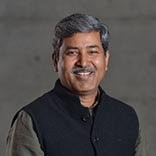
Anil Roy
Faculty of Planning, CEPT University
Dr Anil Kumar Roy has been working as an Associate Professor in the Faculty of Planning, CEPT University in Ahmedabad since 2009. He holds a PhD degree in Urban Geography from Jawaharlal Nehru University, New Delhi, India. He was awarded Canadian Studies Doctoral Fellowship for his PhD work and was affiliated with Dalhousie University, Halifax in Canada during 2002. He has also studied planning with a specialization in Urban and Regional Planning from CEPT University. Dr Roy has also worked for UNESCO office in New Delhi as a National Coordinator for Indian Heritage Cities Network prior to joining CEPT University. His research papers have been published in national and international journals and had published a book entitled Port city Planning and Management- Social and Environmental Concerns in India and Canada. He has also presented his research papers at various national and international conferences both in India and abroad. Two of his joint conference papers on Planning Education in India have been awarded the best papers in the International Conference of Association of Planning Schools in Asian (APSA-2017 Johor Baru, Malasia and APSA 2019, Beijing, China) consecutively. Dr Roy has worked on various research and consultancy projects supported by Central and State Governments, Urban Local Bodies and Intergovernmental Agencies during the last 20 years. Recently, Dr Roy was awarded short term research fellowship under Urban Knowledge Network of Asia (UKNA) to conduct research on Natural Heritage Preservation and Urban Planning in Mega City in India. He was affiliated to Ecole Nationale Superieure de Paris-Belleville, in Paris. His research interests are socioeconomic analysis, impact assessment and evaluation focusing on urban and regional planning, environment and development, urban poverty, industry and environment interface etc.
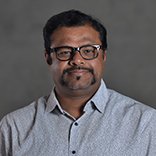
Ashwani Kumar
Faculty of Planning, CEPT University
Ashwani Kumar is Associate Professor Faculty of Planning. He has been with CEPT University since 2005. He holds a Bachelor of Technology in Civil Engineering from Indian Institute of Technology (IIT) Kanpur and a Master's Degree in Planning (Environmental Planning) from CEPT and has 15 years of experience. He has undergone an international professional training on 'Spatial Environmental Planning and Management Systems in European Countries' and is a recognized Green Buildings (GRIHA) evaluator. He offers courses on environmental science, environmental impact assessment, waste management, environmental infrastructure and Services, environmental legislation and cities & climate change. He guides students in Urban Environment Management and Regional Planning studios. He has worked with National, State and Local governments; and International multilateral / bilateral agencies on professional/research assignments on Development Plans, Coastal Regions Environmental Management Plan (Sri Lanka) as part of AISA-URBs program and Urban Environment Assessment of Pokhra (Nepal). His earlier experience as 'Environmental Engineer' at 'Central Pollution Control Board (CPCB), Delhi' was with special focus on leading a team as part of a World Bank funded project.
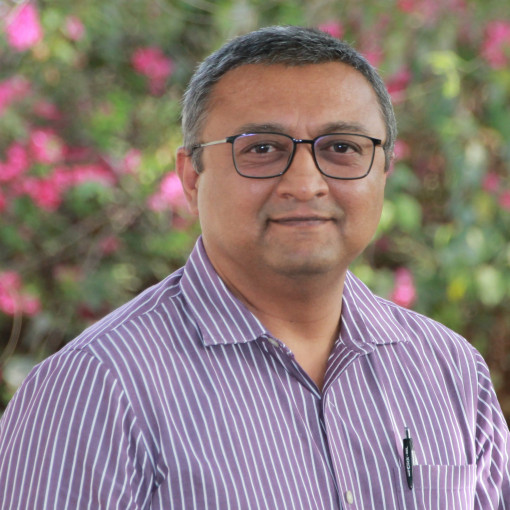
Darshan Parikh
CRDF, CEPT University
Darshan has a Master's Degree in Urban and Regional Planning from CEPT University. He is an avid reader and is keenly interested in geopolitics. Darshan joined CRDF in 2019. Darshan is a CEPT University alumnus and brings with him 20 years of experience working on projects and policies for the urban development sector. He has contributed to smart cities, revenue enhancement for urban local bodies, value capture financing, city development plans, and large-scale public-private partnership projects. During the span of his career, he has worked with multilateral and bilateral development institutions, central and state governments, para-statal agencies and urban local bodies. Darshan formerly worked with the consultancy arm of CRISIL and Jacobs Engineering. As the Director of CRDF, Darshan oversees the implementation of CRDF’s operational and financial processes, systems, and organization policies and regulations. He manages the CRDF executive office daily and supports the Centers in pursuing funding opportunities, negotiating contracts and agreements and managing client engagement on diverse projects and initiatives. He provides acting leadership for Centers when there is a leadership vacancy.
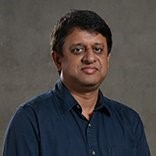
Jignesh Mehta
Faculty of Planning, CEPT University
Jignesh Mehta is Senior Adjunct Associate Professor and Program Chair for Master of Urban Planning at Faculty of Planning at CEPT University. Jignesh holds Masters Degree in Urban Planning from University of Illinois at Chicago (UIC), USA and degree in architecture from CEPT University, Ahmedabad. Jignesh has about 24 years of professional and academic experience, working as urban planner and urban designer in the USA and India. He has been involved in academics since 2014 and very much enjoys the balance of academics and professional practice. During his practice the Jignesh has led and worked on significant projects winning National Award from American Planning Association (APA), and HUDCO National Design Award. Jignesh’s areas of work range from Development plans, Master plans and local area plans to Transit Oriented Developments (TOD), Development Regulations (DCRs), Form-based Regulations, Heritage Area Planning and Urban Design solutions. Some of the significant projects Jignesh has led and worked on include Development Plan for Ahmedabad Urban Development Authority (AUDA), Amochu Development Plan for Phuentsholing Bhutan, Regional Framework Plan 2040 for Chicago, TOD for California High-Speed Rail (CHSR) stations, Canal-front Development, streets & flyover under-space designs etc. Beyond India, Jignesh has worked on various planning and urban design projects in Chicago, San Francisco, Washington DC, Los Angeles, Dubai, Bhutan etc. Jignesh is currently working on projects for improving LAP, TPS and DP mechanism in various cities of India.
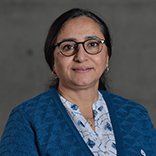
Madhu Bharti
Faculty of Planning, CEPT University
Madhu Bharti is Professor at Faculty of Planning, CEPT University. She is an policy-planner with more than 25 years of experience, having spent the earlier 13 years of her career at the Housing and Urban Development Corporation (HUDCO ) engaged in the sector of housing and infrastructure finance. She has carried out extensive work in the field of Land and Housing, Urban Poverty, Slum and poor income areas, Urban Development & Infrastructure, Rural Livelihood & Poverty. Along with academics, in the past years Prof. Madhu Bharti has worked extensively on a variety of research and consultancy projects for State and Central Governments in India, NGOs and international funding bodies. She has national and international experience in various fields of urban development.

Mansi Shah
Faculty of Planning, CEPT University
Mansi Shah is an architect-urban-designer. She is currently based in Ahmedabad and teaches in Bachelor of Urban Design, as an Adjunct Professor in the Faculty of Planning at CEPT University. With teaching, she works on her independent research projects on different subjects under ‘Ahmedabad Mapping Project’, ‘City Water Walks’, and ‘Productive urbanism’ (research and practice based on productive and edible cities). She has a keen interest in pedagogy and research and has carried out several publications, workshops to explore innovative ways to support her research and learning for students. She has also co-authored the book ‘Prathaa: Kath-khuni architecture of Himachal Pradesh’.

Melissa Smith
Faculty of Planning, CEPT University
Melissa Smith is an architect and urban planner based in Ahmedabad, India, and part of banduksmithstudio, an architecture, urban design, and research practice that she founded with Sachin Bandukwala. Their work engages processes of making through research on unique construction methods, both institutionalized and inventive, and built projects that explore the boundaries of material and craft in the context of contemporary Indian construction. Melissa holds Master of Architecture and Master of City & Regional Planning degrees from the University of California, Berkeley, where she was a John K. Branner Fellow in 2010, and investigated the incremental, unplanned transformation of aging modernist planned cities in a project that included Chandigarh, Brasilia and New Belgrade, as well as several other mid-twentieth century cities around Europe, the Middle East, and Latin America. She completed her BA with concentrations in German, Asian Studies and Art History from Calvin College, Michigan, USA. Her research interests are interdisciplinary, and generally follow how inhabitants tend to restructure their built environments over time. This has led her to explore associated fields in architecture and planning, and she has written about research in building science, craft and construction, and incremental and cyclical processes of settlement formation. Her work has been published in journals in the United States and India, and as part of the Hong Kong and Venice Biennales. In Ahmedabad Melissa has been teaching in the Architecture and Planning Faculties at CEPT University since 2011, with courses focused on issues at the intersection of the architecture and planning fields. As Head of Program Development for the new undergraduate program Bachelor in Urban Design, Melissa guides the curriculum development for new courses, and works together with the Dean and the Program Coordinator to support and review the implementation of the program, and to ensure that its pedagogical aims are met. She has also worked with a number of Ahmedabad based organizations on building and settlement related projects. Prior to moving to India, she worked in architecture firms in Grand Rapids, MI and San Francisco, CA.

Neelima Thota
Bill and Melinda Gates Foundation (BMGF)
Neelima Thota is an experienced Engineering and Management professional with over two decades of experience in the development sector with a special focus on water & sanitation and transportation, spanning over USA and India. In the past decade, she has influenced and managed decisions & investments towards equitable, innovative and sustainable development with a focus on water and sanitation. She is currently the Asia Lead CIWIS WASH, BMGF. I past she has led the urban WATSAN programme at Arghyam Foundation and architected several projects that aim to demonstrate innovative models of decentralized approaches, embracing the principles of equity, efficiency and sustainability. Prior to Arghyam, she built and led project teams towards execution of several JNNURM projects and played advisory role with agencies such as GIZ, ADB, USAID, ASCI, and worked closely with several state governments, MoUD, MoHUPA, CPHEEO, Planning Commission and Finance Commission. She also works closely with United Nations University to enhance a broader knowledge sharing platform in water and sanitation sector through their flagship nexus observatory programme.
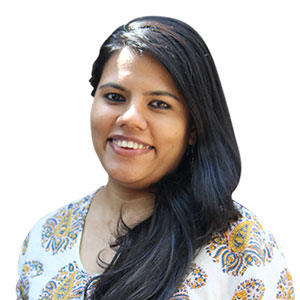
Parnasha Banerjee
Dasra
Parnasha works at Dasra in the Urban Sanitation team. She works with the network of partners under the Bill & Melinda Gates Foundation's WSH (Water, Sanitation and Hygiene) portfolio and identifies areas for strategic collaboration, capacity building and amplification to further their impact. Prior to this, Parnasha worked in various teams including monitoring & evaluation, communications and led the WASH implementation program at Safe Water Network India. She has also previously worked at WWF-India in the Climate Change Adaptation team where she primarily looked at water resource management and sustainable agriculture in the Ramganga basin. Parnasha has a Master's in Water Policy and Governance from Tata Institute of Social Sciences, Mumbai and a Bachelor’s in Science from Miranda House, Delhi University.

Purvi Chhadva
Faculty of Planning, CEPT University
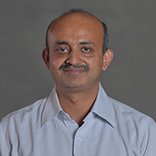
Ravi Sannabhadti
Faculty of Planning, CEPT University
Social worker and planner by education, with experience of working on social equity and community development issues since 2001, particularly in the thematic sectors of Disaster Response, Rehabilitation & Preparedness; Integrated Water Management; Affordable Housing; Urban Poverty and Sustainable Livelihoods; The said experience spans work profiles in policy analysis, research, capacity building and program management roles with Multilateral Donor Agencies, National Government Agencies, Corporate consultants, Academic Institutions and Non-Governmental Organizations. All engagements, have involved aspects of 'capacity building' and the development of 'knowledge tools & products' like policy papers, guidelines, toolkits, etc to aid decision making and improve governance & service delivery, relevant to rural, urban and peri-urban contexts.
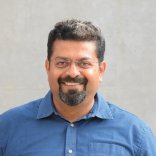
Rutul Joshi
Faculty of Planning, CEPT University
Rutul Joshi is an architect-urban planner with a Ph.D. in Transportation Studies (UWE, Bristol, UK) with 20 years of academic and research experience. Rutul chairs the Foundation module of courses for all PG programs in the Faculty of Planning. He teaches the PG Foundation Studio and subjects like history, theory, and spatial/transport planning. Rutul also heads the Doctoral programs at CEPT University. Rutul’s research and consultancy work focus on Transit-oriented Development (TOD), sustainable mobility, transport equity, and parking policies. Rutul led a multi-year research project on contextualizing transit-oriented development for Indian cities. The key project outcome was the TOD planning handbook, which was used to train about 350 government planners and officials in the program supported by MoHUA, the Government of India. Currently, Rutul is working on issues related to parking policies in Indian cities, TOD principles to retrofit areas around transit in East African cities, and the urban mobility challenges during/after the pandemic. Apart from several academic publications, Rutul occasionally writes on civic and urban development issues in the newspapers and media.
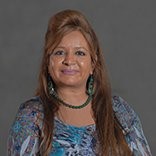
Sejal Patel
Faculty of Planning, CEPT University
Sejal Patel is Dean, CSP, Head, CEPT International Office and Chair, Master of Urban Housing Program. She has engaged in academics, professional practice and research in areas of housing policy and projects, urban planning and legislations, urban regeneration and gentrification policies, and participatory urban governance. She has engaged with national, state and local governments, multilateral agencies, civil society organizations, national and international research and academic institutions. She teaches courses on housing legislations, policy and programs; affordable housing projects; smart cities; and studio on Urban Housing Strategy. She has undertaken international studios on urban development plans in collaboration with universities in Srilanka, Thailand, Bhutan, Cardiff, China and Kenya. She has been conferred Doctoral degree by University of Twente, Netherlands in the field of participatory urban governance for the poor. As Head of International Office, she has steered academic and research collaborations with institutions of excellence in Australia, China, France, Italy, Spain, Kenya etc. in various disciplines of Human Habitat studies.
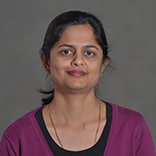
Shalini Sinha
Faculty of Planning, CEPT University
Shalini is working as an Associate Professor with Faculty of Planning since 2009 and offers postgraduate courses in transport planning and transport modelling. She is a transport and urban planner with more than fifteen years of work experience in India and the United Kingdom. Having a Masters degree in Transport Planning and Engineering from the University of Leeds, U.K., she has worked in London in the areas of public transport demand forecasting and economic appraisals, pedestrian modelling and analysis and transport scheme appraisals. In India, she has been associated with a number of urban transport and urban planning projects. More recently, she has been involved in BRT projects for Hubli Dharwad, Surat, Vadodara and Ahmedabad as well as in research projects related to strategic transport planning, integrated land use transport strategies, demand modelling and public transport network planning. Her research interests lie in transport policy and practice, transport modelling, economic appraisals and public transport planning.
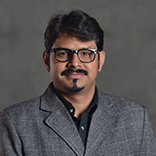
Subhrangsu Goswami
Faculty of Planning, CEPT University
Dr. Subhrangsu Goswami is Asst. Provost (Academics) at CEPT University. He also heads the CEPT Professional Programs (CPP) at CEPT University. By education and training, Subhrangsu is an Environmental Planner and Environmental Engineer. Subhrangsu holds a doctorate degree in Public Policy and Administration. His key areas of interest are Urban Infrastructure and Service Delivery; Water & Sanitation; and Environmental & Social Impact Assessment. Subhrangsu has 18 years of professional experience in research, consulting, and teaching. Before Joining CEPT University, Subhrangsu was associated with PriceWaterhouseCoopers (PWC), and has worked as a member of the JnNURM Technical Cell at Ministry of Urban Development (MoUD), Government of India, under the Technical Assistance from Asian Development Bank (ADB). Subhrangsu has also been a member of the core team for research and consultancy projects funded by the Ministry of Urban Development (MoUD), Ministry of Earth Sciences (MoES), Ministry of Labour & Employment (MoLE), World Health Organization (WHO), India-Canada Environment Facility (ICEF), International Water Management Institute (IWMI), German Society for International Cooperation (GIZ), and many state government departments. Subhrangsu has authored many research papers, working papers, journal articles, and book chapters. He has coauthored a book titled “Valuation of Coastal Resources: The Case of Mangroves in Gujarat” published by Academic Foundation, New Delhi (ISBN -81-7188-596-9). He has guided more than 80 thesis students at CEPT University.
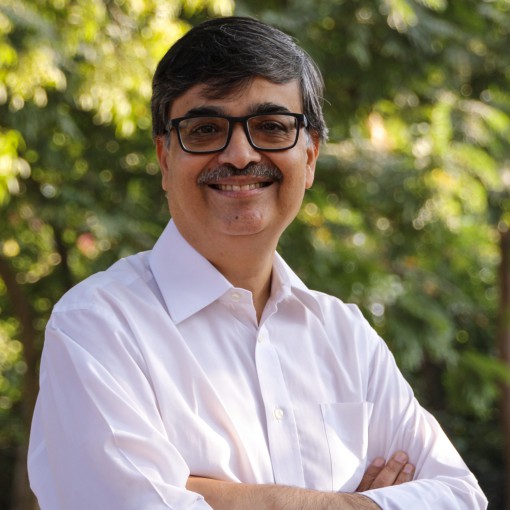
Suren Vakil
CRDF, CEPT University
Suren Vakil holds a Bachelor’s degree in Civil Engineering and a Masters in Environmental Engineering from the University of Leeds, UK. He is a UK Chartered Engineer and Chartered Environmental Manager and has been the regional representative for the Institution of Civil Engineers, UK. He also has a Certificate in Company Directorship from the UK Institute of Directors. Suren joined CRDF in 2018. He comes from a background of engineering consultancy having worked in this field from 1984 to 2018. He spent 14 years in the UK working with leading firms followed by 21 years in India, during which he set up and led the Indian operations of two well-known UK based international companies namely Babtie Group and BMT (British Maritime Technology). In his career spanning 33 years, he has worked on several hundred infrastructure projects at various stages in India and over ten other countries. As Vice Chairman, Suren is responsible for strategic leadership and improving, governance capacities and operational systems to enable CRDF deliver high quality outcomes. He is at the helm of growing the organization into a leading ‘think-and-do tank’ at the forefront of technological innovation and policy and planning reform in the built environment sector. He is also deeply interested in fostering and strengthening the culture of research and collaboration at CRDF. Suren’s interests lie in reading history, popular science and amateur photography.

Afreen Fatima
School of Planning andArchitecture,Bhopal
Afreen Fatima, known for her creative approaches and problem-solving skills, is a doctoral candidate at SPAB in conservation architecture. With over 15 years as a respected architect worldwide, she excels in leading teams and executing projects independently. In addition to her professional achievements, Ms. Fatima skillfully manages the delicate balance between being a mother and a freelancer. Her creativity turns ideas into reality, and as the head of the design department, she shares her expertise through teaching. Her interests specifically incline towards urban water management systems. A passionate writer, she finds fulfillment in the intersections of design and motherhood, creating a captivating story.
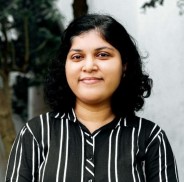
Sharayu Gangurde
School of Planning andArchitecture,Bhopal
Sharayu Gangurde, an architect, graduated from Sir JJ College of Architecture. She holds a PG Diplomain Urban Planning & Development and has a diverse professional background encompassing Academia, Barrier-Free Inclusive Design Architecture, Documentation of Green Open Spaces, andResearch in Migration Studies with TU Berlin. Her involvement in the Accessible India Campaign resulted in providing barrier-free solutions across various sectors including Educational Institutions, Commercial Estates, Religious Spaces, Recreational Areas, Public Services, and Transportation Systems in Nashik and Mumbai, facilitated by the Ministry of Social Justice and Empowerment. Sharayu has also supervised undergraduate architecture student teams in surveying and documenting reserved open spaces listed under the MCGM. Furthermore, she collaborated with international researchers on documenting the Mithi and Oshiwara rivers. Currently, Sharayu is pursuing a Masters in Landscape Architecture at the School of Planning andArchitecture in Bhopal, marking her return to academia after more than a decade of professional practice.

Amita Pathria
WaterAid India
Amita an Urban Strategist with 7 years of experience, holding a Master’s in Urban & Regional Planning. Specializing in urban sanitation, I've contributed to non-sewered sanitation capacity building programs in India. Experienced in e-course development and training modules, I contributed in conceptualizing the Hill Cities Forum for Himalayan States. As a Sanitation Specialist at Water Aid India, I focus on diverse initiatives like accessible toilets, Swachha anganwadis, Rural FSM policy, and community-led water and greywater management. Committed to positive societal impact, my varied roles as an architect, researcher, and educationist enrich my understanding of urban development complexities.
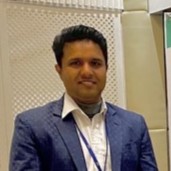
Anil Aryal
International Water Management Institute
Dr. Anil Aryal is currently working as a National Researcher at International Water Management Institute (IWMI) Nepal office in Water Resource Management. He is engaged with two climate resilient WASH system projects at IWMI funded by DFAT. In one of the project, he and his team are supporting the local government to draft a climate resilient WASH plan in Dailekh and Sarlahi districts of Nepal. Additionally, he handles projects related to groundwater governance and build water storage in South Asia which is funded by USDA. Prior joining IWMI, I worked as a Senior Research Specialist at Water Engineering and Management, Asian Institute of Technology (AIT), Thailand and postdoc researcher at Interdisciplinary Center for River Basin Environment (ICRE), University of Yamanashi in Japan. Since the undergraduate level, he has been involved with water supply and sanitation Project as a Research Assistant. He has extensive experience in the field of water resources, climate change, and climate resilient WASH system.

Anil Dutt Vyas
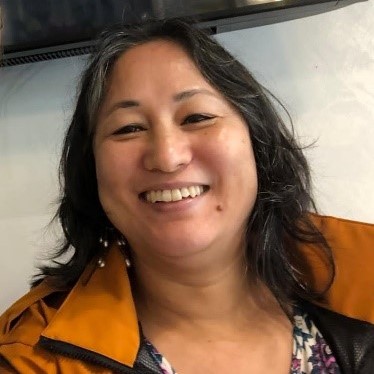
Anjali Manandhar Sherpa
University of Bristol
Anjali Manandhar Sherpa is a Sanitation Specialist with over 20 years of experience in the sector. Having worked in the NGO sector, the UN system and as a freelance consultant, she has diverse experience of working with multiple stakeholders including a range of international partners. She has a track record of working in the areas of project design, management, technical backstopping, monitoring and evaluation. She has gathered extensive knowledge on faecal sludge management through national and international exposures. She has led development of Citywide Sanitation Plans in Nepal. As a subject matter specialist, she has provided expert inputs in development of training modules on citywide sanitation planning, non-sewered sanitation and faecal sludge management. She was a visiting faculty at the Department of Engineering at Kathmandu University in the Masters course on Sanitation Technology. Anjali did her Masters in Environmental Science and Technology from UNESCO-IHE in 2004. Her current PhD research focuses on capacities for resilience to climate change in sanitation.
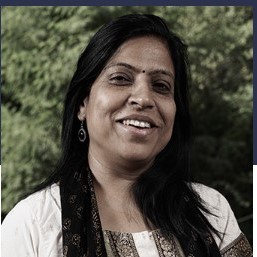
Anju Dwivedi
Global Water and Sanitation centre
Anju Dwivedi is a social development specialist with a Masters in Anthropology, working in the development sector for 28 years. She has worked with civil society organizations, State, and national Governments on promoting community engagement and strengthening leadership of marginalized communities, undertaking policy research and capacity building support for the National and State Programs and Schemes on Housing, Poverty Alleviation and Water and Sanitation, in both rural and urban geographies. She was associated as Associate Fellow with the CPR and supported program on Non networked sanitation in Odisha with the support from BMGF. She is currently working as senior Social Development specialist in Scaling City Institutions for Asia and India at Global Water Sanitation Centre, Asian Institute of Technology to support inclusion of marginalized communities in WASH under CWIS framework. Her Research Interest lies in areas of Gender Equity and Inclusion of the most marginalized including sanitation workers.

Anthony Odili
WASH R&D Centre, University of KwaZulu-Natal
Anthony is a Research Scientist at the WASH R&D Centre, UKZN. Through the WASH R&D Centre and in collaboration with eThekwini Municipality, Anthony has conducted socio-technical assessments and user experience surveys of innovative, off-grid toilet prototypes in informal settlements and peri-urban areas in Durban, South Africa. Anthony's research interest is on sanitation, sustainability, and innovative sanitation governance. He is currently pursuing his PhD in Development Studies at the University of KwaZulu-Natal and researching on sanitation alternatives and the shifting sanitation landscape in eThekwini Municipality.
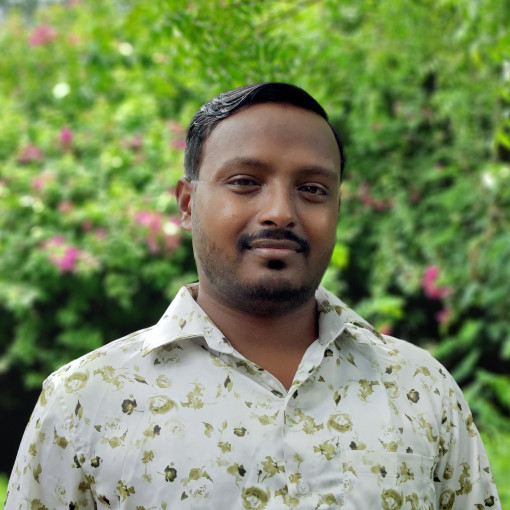
Arfat Attar
CWAS, CRFD, CEPT University
Arfat has been associated with CWAS since 2017. He is a civil engineer from Pune University and is involved in the overall coordination, monitoring and management of the sanitation project in Sinnar under Swachha Maharashtra Mission. He has earlier worked as a rural housing engineer under PMAYG scheme in Nashik.
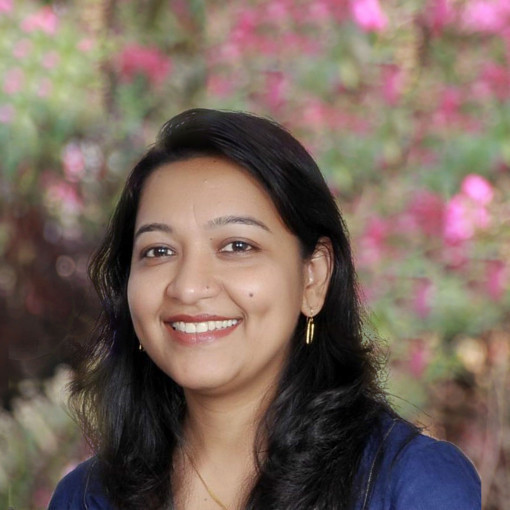
Arwa Bharmal
CWAS, CRFD, CEPT University
Arwa Bharmal is Program Lead at CWAS. She is a development professional with over 10 years of work experience in catalysing urban change through technical expertise, research, consensus building and capacity development. She leads CWAS's work in supporting cities implement sanitation programs, gender inclusive strategies and good governance by working closely with the local city government and stakeholders. She is involved in the City Wide Inclusive Sanitation (CWIS) program in the city of Wai, Maharashtra. Apart from the CWIS program she is actively involved in dissemination of CWAS work under feacal sludge and septage management through capacity building sessions and content development. Arwa is passionate about sanitation in Indian cities with a focus on inclusivity for women and vulnerable groups.
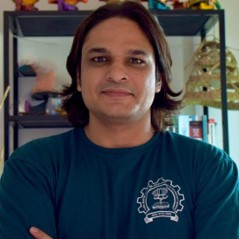
Ashish Dangi
IIT Bombay
Ashish is currently enrolled in the Dual degree program (Masters in Public Policy + PhD in Public Policy) at the Ashank Desai Centre for Policy Studies, IIT Bombay. Bringing insights from his 8 years of experience in operations management with Shell, his research focuses on energy and carbon footprint analyses in WaSH and the climate change impacts on the same. His thesis also focuses on the policy and governance dimensions of Water-Energy-Climate nexus. His other research interests include life cycle assessment, system dynamic modeling and simulation and energy balance and climate adaptation in WaSH.

Neelam Rana
IIT Bombay
Neelam Rana holds a PhD in Technology and Development from the Centre for Technology Alternatives in Rural Areas, IIT Bombay. Her thesis investigated the dominance of centralized approach in urban wastewater management in Indian cities. She has a background in environmental sciences and life sciences. Her research interests include environmental governance, sanitation/wastewater management, solid waste management and society, and public policy analysis. She has worked in development and, government sector, and has academic experience of more than eight years.

Baisakhi Sarkar Dhar
SCIAI-GWSC-AIT
Baisakhi is the Urban Planning Specialist at Scaling City Institution for Asia and India, GWSC, AIT Thailand. She has almost 10 years of experience in the areas of urban planning and management with specific focus on policies and programmes on urban development, slum upgradation, affordable housing & urban basic services for the poor and issues pertaining to land and land tenure in urban areas. She has experience of working with National and state government. She also has experience in procurement and contract management of large-scale infrastructure projects funded by ADB and World Bank. She holds a bachelor’s degree in architecture, from IIEST, Shibpur and a master’s degree in city Planning from IIT, Kharagpur. She has also acquired an MSc in Urban Management and Development, from Erasmus University, Rotterdam, Netherlands.
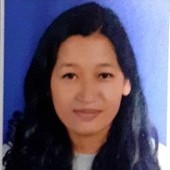
Shristhi Kayastha
ESN
Shristhi Kayastha, a dedicated Environmental officer at ESN.As a passionate Graduate Environmental Scientist, my focus on Environmental Impact assessment and Initial Environmental Examination projects in Nepal reflects my commitment to fostering sustainability and contributing to environmental conservation efforts.

Anindita Mukherjee
SCIAI-GWSC-AIT
Anindita is the Senior Policy and Urban Development Specialist at Scaling City Institution for Asia and India, GWSC, AIT Thailand. She is an Urban Economist by training. Previously, she was an Associate Fellow at CPR’s Scaling City Institutions for India (SCI-FI) initiative. She has worked extensively on areas related to economics of sanitation service delivery in India, monitoring and evaluation of public schemes and programmes, in economic and planning issues related to urban development, land management and urban sanitation. Her key sectors of expertise include urban economics, inclusion, housing & urban basic services (water & sanitation) for the poor, and other marginalized sections of the society, faecal sludge management (FSM), among others. Spanning almost 18 years of her career, she has worked with different sector partners; Government agencies such as MoHUA, various State Governments, urban local bodies, CSOs, other bilateral agencies such as erstwhile DFID, GIZ India and the World Bank.
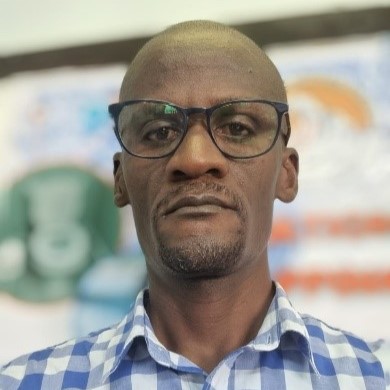
Chanda Mulundu
Lusaka Water Supply and Sanitation Company
Chanda Mulundu has 13 years’ experience in the Water and Sanitation sector in Zambia and is currently the Assistant Inspector under the Faecal Sludge Management (FSM) Unit at Lusaka Water Supply and Sanitation Company (LWSC). The faecal sludge management unit is a specialized unit established to manage the provision of non-sewered sanitation services, an expanded mandate for the utility from the usual services of water supply and sewerage as the utility journeys towards providing citywide inclusive sanitation services. He holds a Bachelor’s Degree in Business Administration from Unicaf, a Diploma in Business Administration from the University of Zambia and Crafty Certificate in Plumbing and Sheet metal from Lusaka Business and Technical College.
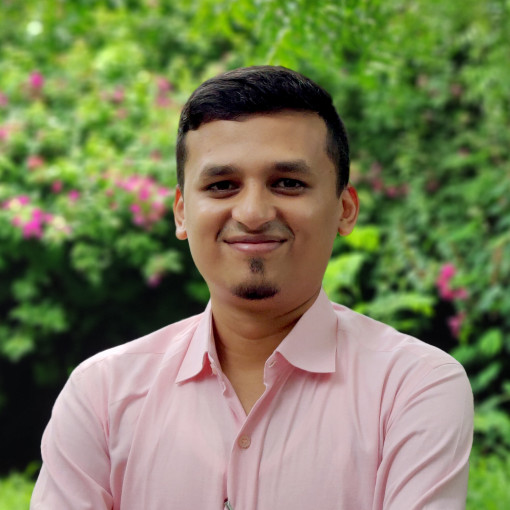
Chirag Patel
CWAS, CRFD, CEPT University
Chirag is an Environmentalist and a WASH professional. He has more than four years of experience in urban and rural sanitation in implementation and capacity building. He is currently supporting the Government of Maharashtra in the implementation of FSSM in Urban areas of Maharashtra under the Swachh Maharashtra Mission. He is engaged in monitoring Urban sanitation programs/ protocols such as achieving ODF+/ODF++/Water plus and Swachh Survekshan rankings. In his previous roles, he has been supporting the Government of Odisha in the implementation of the State Urban Sanitation Strategy by engaging Women and Safaimitras in the sanitation value chain. Apart from that, he has worked with the government of Uttar Pradesh in effective implementation and capacity building of FSSM in ULBs of U.P. He has a Masters’s degree in Environmental science from Somaiya College, Mumbai. He is very passionate about wildlife, loves trekking, playing football, and cycling.
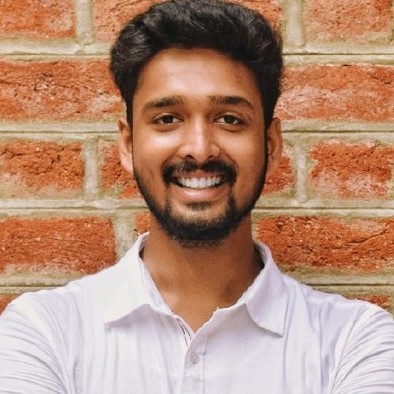
Clinson Chacko
CDD India - Consortium for DEWATS Dissemination India
A seasoned professional currently serving as a Program Associate at CDD India. I hold a master's degree in Planning with a specialization in infrastructure planning from CEPT University, and a major in WASH from IHE DELFT as part of the Global Sanitation Graduate School, graduating in 2023. My career trajectory transitioned from architecture to infrastructure planning, driven by a commitment to addressing critical issues faced by communities, particularly in developing countries like India. Witnessing the profound impacts of climate change, notably the 2018 floods in Kerala and Coorg, underscored the urgency for diverse expertise to contribute meaningfully to societal challenges. This experience ignited my belief that professionals can serve the country in multiple ways. In my current role at CDD India, I focus on Water and Sanitation projects, specifically leading initiatives in Water Security for villages in North Karnataka. Additionally, I actively contribute to the dissemination of knowledge on DEWATS (Decentralized Wastewater Treatment Systems), promoting sustainable solutions for wastewater management. My professional ethos revolves around prioritizing practical solutions over aesthetics, particularly in the context of urban services. I am dedicated to leveraging my expertise to effect positive change, addressing the vital needs of communities in our dynamic world.
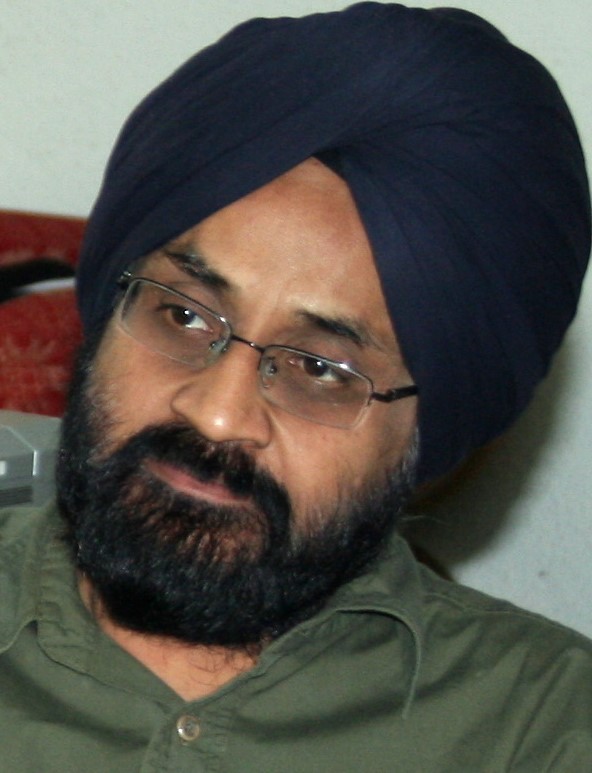
Depinder Kapur
Center for Science and Environment
Depinder Kapur is Director Water Program, at Center for Science and Environment. A senior development and WASH expert, he has worked previously with the national government, with international and national development agencies including WaterAid, CARE, Oxfam, WSSCC, SPWD and AKRSP. Has led research and advocacy initiatives in livelihoods and WASH, and contributed to the development of urban capacity development frameworks and approaches and also taught briefly at Shiv Nadar University(Water Science Policy course).
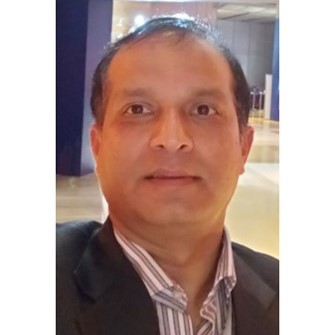
Dhundi Raj Pathak
Center of Research for Environment Energy and Water (CREEW)
Mr. Pathak holds a Ph.D. in Geoenvironmental Engineering from Japan and founding director of the Engineering Study & Research Centre, Nepal since 2011. Dr. Pathak now serves as the President of the Center of Research for Environment, Water and Energy (CREEW), a not-for-profit scientific research-based organization established in Nepal in 2008. He is also currently associated with the Integrated Development Society (IDS)-Nepal, a partner organization in Nepal as a waste management planning expert undertaking the research project entitled “Towards Brown Gold: Re-imagining off-grid sanitation in rapidly urbanizing areas in Asia and Africa funded through the Global Challenges Research Fund (GCRF). Beside this research project, he is also working at the World Bank and other several development and government organizations in the field of integrated solid waste management, fecal sludge management, biomedical waste management, and geoenvironmental engineering and a visiting faculty at Tribhuwan University, Nepal. He has an excellent research record with several research papers and international presentations and is a reviewer in numerous environmental engineering journals.
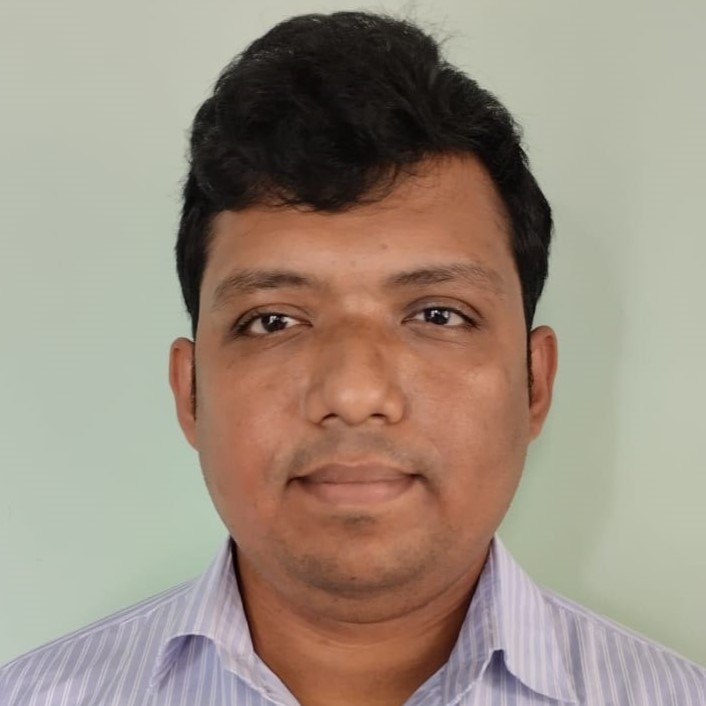
Digbijoy Dey
IRC
Digbijoy Dey is an environment professional who has 12 years of working experience in the field of water and wastewater. He is working for IRC as Senion Programme Officer in Bangladesh and leading it’s Bangladesh Programmes. He has worked for BRAC to develop their water & wastewater treatment, faecal sludge management and water quality testing procedure development. He did his post-graduation in environmental management from the University of Twente. He has substantial research experience in Bangladesh and the Netherlands. He published more than 10 scientific publications in international journals.
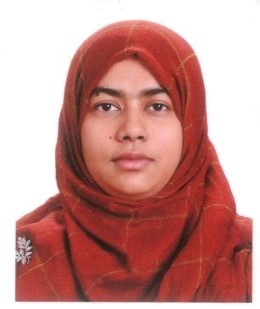
Dilruba Farzana
Department of Public Health Engineering (DPHE), Bangladesh
Dilruba Farzana is an accomplished engineer with a strong background in civil engineering with 16 years of work experience. She has made significant contributions within DPHE in Bangladesh. Her roles have included Project Manager and deputy project directors for different urban and rural WASH projects all under DPHE. She played a vital role in the flagship program, "Strengthening of Public Data System for Sanitation in Bangladesh" to harness national resources for harmonizing sanitation data from various sources for contributing to the SDG 6.2 target of safely managed sanitation for all. She holds a Bachelor's degree in civil engineering from Bangladesh University of Engineering and Technology (BUET) and has earned dual Master's degrees in ‘Disaster Management’ from Dhaka University and ‘Water Resources Management’ from the University of South Australia under the prestigious Australia Award scholarship 2020.
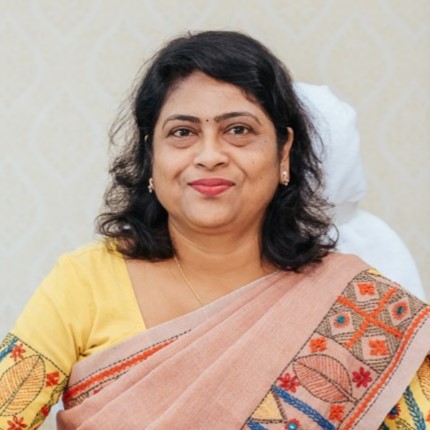
Durgesh Nandini Sahoo
(Dept. of Housing and Urban Development) Government Of Odisha
Durgesh Nandini Sahoo, currently holding the post of Additional Secretary to Government in the Department of Housing& Urban Development is a dynamic and dedicated leader with an astounding commitment in advancing the transformative Government initiatives. Her unwavering dedication and consistent efforts have been quite instrumental in the effective execution of various government schemes. In her role as the Nodal officer of the FSSM, Garima Scheme, she has been quite exemplary with her assignments with a deep sense of belonging and responsibility in bringing innovation and excellence.

Elmira Bacatan
UNICEF
She is a public health practitioner and a licensed medical technologist with a graduate degree in Public Management from Ateneo de Manila University and a bachelor’s degree in Public Health from the University of the Philippines Manila. She has been working with UNICEF since 2016 as WASH Specialist, managing the WASH in communities program, as part of UNICEF’s support to the Department of Health in implementing the Philippines Approach to Sustainable Sanitation. She has managed numerous humanitarian response programs for Oxfam addressing emergency needs on water, sanitation, livelihood and shelter in conflict and disaster-affected areas, both here in the Philippines and overseas. In 2012, she has supported the implementation of capacity development programs on WASH and particularly on public health promotion in eight countries in Southeast and Central Asia. She has extensive policy research experience covering health sector reform agenda, human resources development, and health financing.
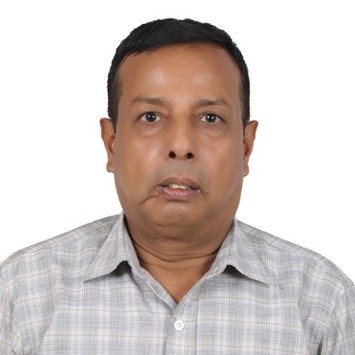
Ganga Datta Nepal
Bindo Nepal Smriti Foundation (BNSF)
I am from Sindhupalchok district Nepal, working as an Expert on ‘Water Sanitation and Climate Change’ sector; also chairs BINOD NEPAL SMRITI FOUNDATION, a societal upliftment Program established in Kathmandu, Nepal. Before, I was leading DAAD Alumni Project (2021-2023) Bonn, Germany and Country Team Lead of Nepal of USAID’s WASH-FIN Program implemented by Tetratech based on WA DC, USA (2019-2021). Academically, completed PhD in Water and Climate Change, M.SC. Civil and Environmental Engineering and Master in Rural Development. I have worked more than 25 years on WASH, Public Health and Climate Change sector with Government, Bilateral and Multilateral agencies. During my long tenure I was involved for the preparation of policies, regulation and implementation of programs and leading of many country level monitoring and evaluation of WASH, Public Health and Climate Change programs. I have attended different seminars in Europe, Asia and America presented country paper on my areas expertise.
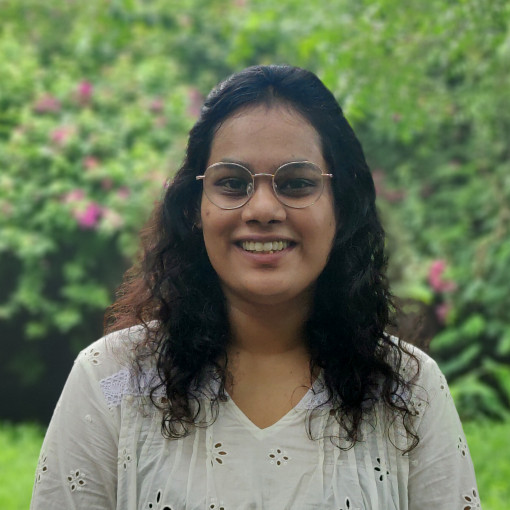
Gautamee Sayamwar
CWAS, CRFD, CEPT University
Gautamee Sayamwar has done her post-graduation in Urban and Regional Planning from JNAFAU, Hyderabad and graduation in Architecture from SMMCA, Nagpur. Currently she is working with CWAS as a Research Associate. She works at Konkan division commissioner office under the Swachh Maharashtra Mission cell. Here, she is involved in providing technical support to all cities of Konkan division in Maharashtra for achieving ODF++ status. She works for data collection, analysis, site visits, support for universal toilet access, and technical guidance for FSTP construction.
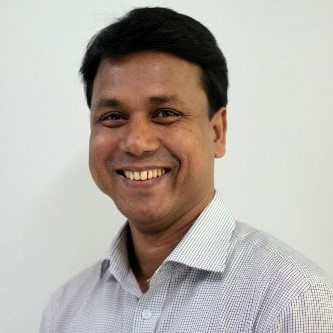
Habibur Rahman
Water & Sanitation for the Urban Poor (WSUP)
Habibur Rahman is a Water and Sanitation Specialist, with an interest in Water Supply, City Wide Inclusive Sanitation (CWIS), Faecal Sludge Management (FSM), Solid Waste Management (SWM), private sector service providers, climate resilient WASH infrastructure development, policy influencing, institutional system strengthening, capacity building, and market promotion for functional WASH service delivery. He is a civil & environmental engineer with background in business management and over 23 years of experience in WASH sector. Mr. Rahman has played a versatile role in the engagement of the private sector in sanitation business. At present, he is working as Team Leader- WASH System Strengthening for Health with WaterAid Bangladesh leading the key experts of the team for functional WASH services covering the entire service chain. He previously worked with Water & Sanitation for the Urban Poor (WSUP) as Sanitation Lead and demonstrated several sustainable service delivery models and conducted this study during that time.
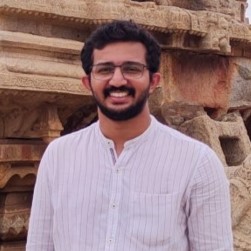
Hariprasad V M
IIT Bombay
I am Hariprasad VM, currently pursuing my Ph.D. at the Centre for Technology Alternatives for Rural Areas (CTARA) at IIT Bombay. My research focuses on the marginality and agency of sanitation workers in Alleppey town, Kerala. I hold a master's degree in Environmental Studies and Resource Management from TERI University, New Delhi. Prior to joining IIT Bombay, I served in teaching and research capacities at Ashoka University, Haryana, and Azim Premji University, Bangalore. Before commencing my Ph.D., I contributed to post-flood recovery initiatives in Kerala with SEEDS India, an NGO based in Delhi. My research interests and prior experiences encompass a range of topics, including WASH (Water, Sanitation, and Hygiene), urban ecology, climate change, environmental justice, and disaster management.
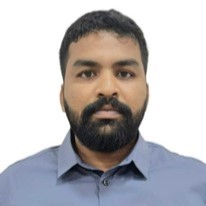
Himanshu Satvi
Sthira
Himanshu Satvi is a passionate urbanist and architect with a background in pioneering sustainable solutions for communities. Formerly at EY, he has transitioned to spearheading a startup (Sthira) focused on sustainable architecture and urban development. With a keen interest in enhancing water, sanitation, and hygiene (WASH) initiatives alongside social infrastructure, Himanshu leads research projects aimed at fostering resilient and inclusive urban environments. His vision intertwines innovation with a commitment to environmental stewardship, aiming to create spaces that harmonize with nature while meeting the evolving needs of society. Through his work, Himanshu Satvi endeavors to shape communities, where sustainability, equity, and well-being form the cornerstone of urban design.
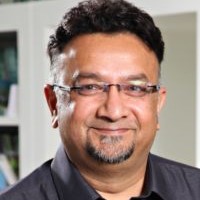
Jayant Bhagwan
Water Research Commission
Jayant (Jay) Bhagwan, is the Executive Manager of the key strategic area of Water Use and Waste Management at the South African Water Research Commission, which focuses on the management of water and wastewater in the Domestic, Mining and Industrial sector. He has been instrumental in creating the portfolio of research projects and innovations related to water supply and wastewater management. He completed his Masters Degree in Tropical Public Health Engineering from Leeds University, UK. With his knowledge and experienced gained in implementation of water and sanitation projects, he has played and participated in the shaping of national water policy and legislation. He held the posts of the President of the Water Institute of Southern Africa, Chairperson of the Minister of Water Affairs and Forestry Water Advisory Committee, as well as international advisory positions with the Water Supply and Sanitation Collaborative Council, IWA- Global Development Agency and UNEP. He continues to be actively involved globally in a broad range of areas in the field of water supply, wastewater and sanitation, with current focus being on sanitation technologies for the future, technology innovation and application, social franchising of O&M, conduit hydropower, benchmarking, reuse and reclamation of effluents. He has contributed to raising the sanitation profile, and has been instrumental in pioneering the FSM conference series as well the NSS concepts.
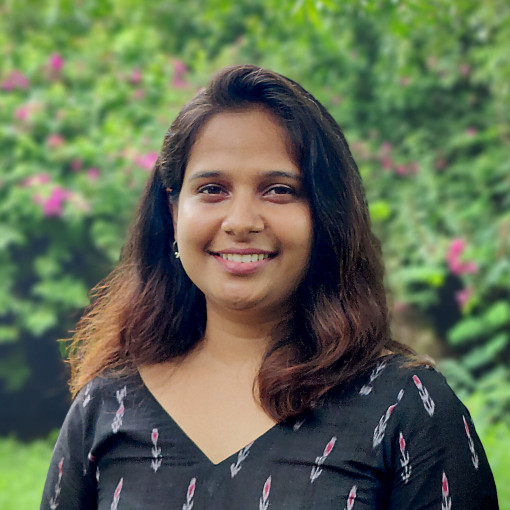
Jigisha Jaiswal
CWAS, CRFD, CEPT University
Jigisha Jaiswal is a civil engineer and has done her post-graduation in Urban Planning from CEPT University, Ahmedabad. She is currently working at CWAS as a Senior Research Associate. She has experience in faecal sludge and septage management, water quality monitoring, sustainable urban water management and public finance. She co-ordinates activities at state and division level for supporting implementation of Swachh Bharat Mission in Maharashtra.
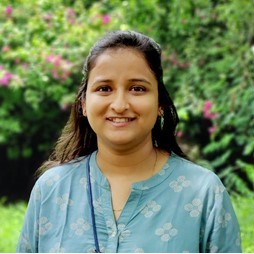
Jinal Chheda
CWAS, CRFD, CEPT University
Jinal Chheda is an architect - town planner with experience in building services, rural development and sanitation sector. Curently she is with CWAS as a Research Associate. At CWAS she is actively engaged in supporting Satara Municipal Corporation for sanitation improvements and has also provided support for City Wide Inclusive Sanitation in Wai. Jinal holds a Masters in Town and Country Planning from College of Engineering, Pune and a Bachelors in Architecture from BKPS, Pune. Her key areas of interest include sustainable rural development plans, equitable sanitation and cost-effective building design.
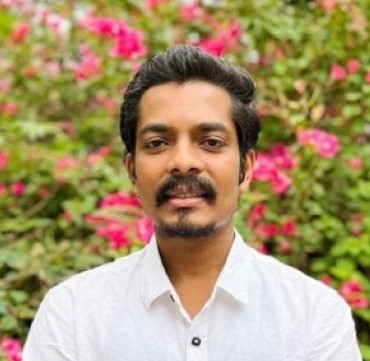
Karan Patil
CWAS, CRFD, CEPT University
Karan is associated with CWAS since 2022. He has completed his Master's degree in Urban Infrastructure with specialization in WASH from CEPT University and graduated in Urban Planning from the College of Engineering Pune (COEP). He has a prime interest in climate change and its implications on WASH sector, community engagement, and sustainable urban development. Over the course of time, he wants to contribute towards improving the condition of WASH sector in small and medium towns and rural areas. Moreover, he is passionate towards playing cricket, football, and badminton.
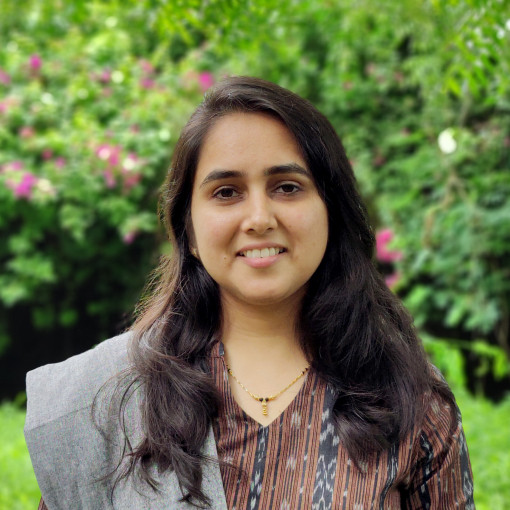
Kasturi Joshi
CWAS, CRFD, CEPT University
Kasturi Joshi holds a Masters degree in Urban Planning from CEPT University, Ahmedabad and a Bachelors degree in Architecture from VNIT, Nagpur. Currently she is working as CWAS as Senior Research Associate. At CWAS, she has been primarily supporting the planning and implementation of sanitation programs in the small and medium towns of Maharashtra with a focus on Citywide Inclusive Sanitation (CWIS) and Faecal Sludge and Septage Management (FSSM). Access to own toilets for all, sanitation finance at household level, gender inclusivity, municipal capacity strengthening, resource recovery and reuse at the FSTPs have been some of her areas of work and interest.
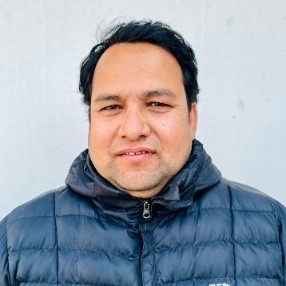
Madan Bahadur
SNV Netherlands Development Organisation
Madan’s professional expertise includes WASH services improvement, water safety planning, project and data management particularly N-WASH MIS. Currently, Madan is supporting the local government for WASH Plan preparations, capacity building for N-WASH MIS process, climate resilient inclusive rural water supply services. Madan holds master’s degree in Rural Development, Diploma in Civil Engineering and pursuing MPhil in Development Studies.
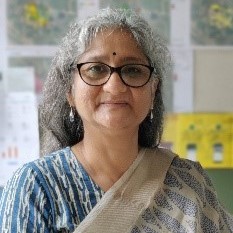
Manvita Baradi
Urban Management Centre (UMC)
Manvita Baradi, Founder and Director of the Urban Management Centre, possesses almost three decades of experience as a prominent urban development advocate. As the Executive Director of the Theatre and Media Centre, she preserves Gujarati theatre and nurtures modern creators. A pioneer in professionalizing urban management, Manvita advocates for decentralized urban development and increased public participation in governance. Through MISAAL program she worked towards enhancing living conditions for urban poor communities through community engagement and citizen ownership. With a global impact spanning 5 countries and over 300 city governments, Manvita has been instrumental in reforming urban development, driving governance changes, and mobilizing community groups across India. Ms. Baradi, the Urban Management Centre's Founder and Director, was CEPT University's inaugural Dean of the Faculty of Management. As the Gujarat chapter Convener of INTACH, she contributes to heritage conservation and advises the Ahmedabad Municipal Corporation. Her consultancy extends globally to organizations like the World Bank, ADB, USAID, and DFID.
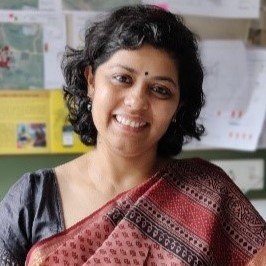
Meghna Malhotra
Urban Management Centre
Meghna Malhotra is the Deputy Director of Urban Management Centre. She is an expert on the design and operation of human centric infrastructure. With over two decades of experience, Meghna stands at the forefront of advocating for the safety, dignity, and well-being of sanitation workers, as highlighted by her leadership in the implementation of the National Action for Mechanised Sanitation Ecosystem (NAMASTE) Scheme, Garima scheme and other significant projects. She is instrumental to UMC’s comprehensive support to the Deendayal Antyoday Yojana-National Urban Livelihoods Mission (DAY-NULM). Meghna has facilitated an emphasis on convergence between DAY-NULM, Swachh Bharat Mission (SBM) and other flagship missions. Since 2001, Meghna, a CEPT University visiting faculty with a master's in Environmental Planning, manages city-to-city programs fostering peer learning. Her holistic approach to local development is evident through courses she developed, reaching government officials in 200+ cities, showcasing her impactful contribution to urban collaboration and education.
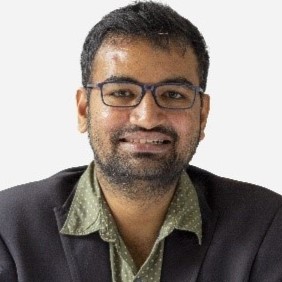
Nikhil Ravindra
Dayananda Sagar College of Architecture
Nikhil Ravindra is a passionate Architect, Urbanist and Academician. He completed his M. Sc Urban Development in 2019 from TU Berlin, Germany with DAAD (German Federal Government) Scholarships, securing the ‘Urban Development Award’ for a very good Master’s thesis. He has 7+ years’ experience and co-founded two startups: MAQAAD in Cairo (Egypt), and CIANKI in Bengaluru, with a vision to actively contribute to the sustainable growth of people & places. He currently works as an Assistant Professor at Dayananda Sagar College of Architecture. He has participated in internationally funded summer schools/trainings in South Africa, Bosnia–Herzegovina, Hungary, and Romania. Nikhil, mostly through funding has presented on the topics of urban governance, climate action, land management, energy efficiency & digital innovations in international conferences & seminars held in Belgium, India, & Malaysia. He has several research publications to his name & also won awards, for practicing sustainable art, architecture, and urbanism.
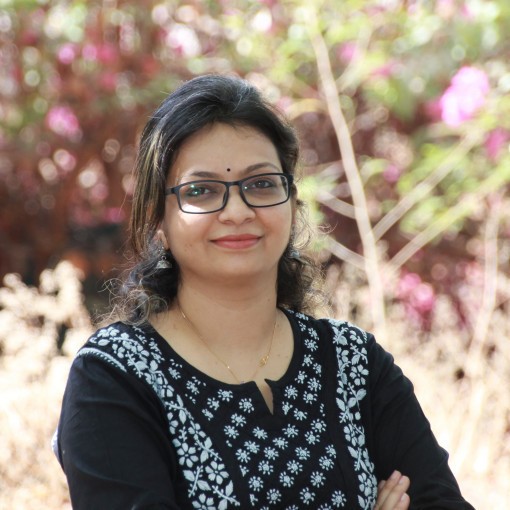
Priyadarshini Choudhary
CWAS, CRFD, CEPT University
Priyadarshini Choudhary has a Master’s Degree in Infrastructure Engineering & Management from CEPT University, Ahmedabad, and Bachelors in Civil Engineering from Rajasthan University, Jaipur. She has over ten years of experience in managing multidisciplinary infrastructure projects. Her core competencies are in project management, coordination and documentation. At CWAS, she is primarily involved in research work related to emerging fields in WASH such as ESG and water security assessments.
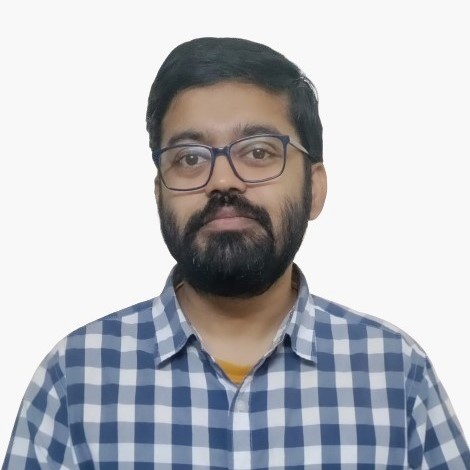
Rajib Das
Centre for Advocacy and Research (CFAR), New Delhi
Dr. Rajib Das, a PhD graduate from the Centre for the Study of Regional Development at Jawaharlal Nehru University (JNU), New Delhi, currently serves as a Senior Consultant in Monitoring and Evaluation, at the Centre for Advocacy and Research (CFAR) in New Delhi. With prior roles as a Consultant at CFAR and a Senior Research Fellow at TRCSS JNU under a DST-supported project, Dr. Das boasts a robust background in academia and research. His impactful publications, featured in esteemed journals, explore diverse topics, including cultural compulsion in sanitation, spatial inequality in the standard of living in urban areas, and women's empowerment in India. Having worked at I-PAC in Kolkata, he demonstrates versatility in navigating political landscapes in West Bengal. Dr. Das excels in academia, research, and the political domain, bringing a comprehensive skill set and a multilingual perspective to his commitment to impactful research and advocacy.
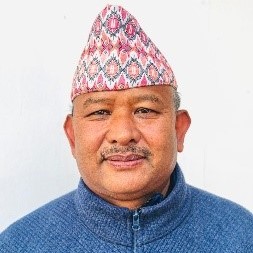
Ratan Bahadur Budhathoki
SNV Netherlands Development Organisation
Ratan Bahadur Budhathoki is working for SNV in Nepal as Project Leader for Climate Resilient Rural WASH Project funded by DFAT Australia’s Water for Women Fund. Professionally Ratan has over 30 years of professional working experience with organization like SNV in Nepal, Plan International Nepal, Nepal Water for Health (NEWAH) and IRC WASH (as JPO). Ratan has obtained master’s degree in Rural Development, master’s in business studies and Diploma in Civil Engineering from Tribhuvan University of Nepal.
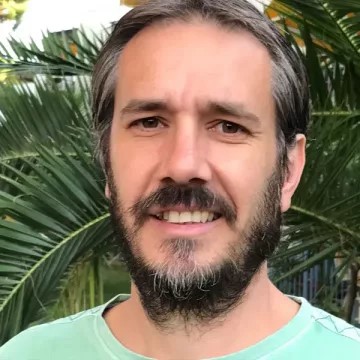
Ricard Giné Garriga
Stockholm International Water Institute
As an advisor for Sustainable Services at the Department of Water and Sanitation, Ricard provides core expertise, promotes research, and advances knowledge with the aim of strengthening WASH systems and promoting sustainable delivery of services. Prior to joining SIWI in 2018, he has been working as a researcher at the Technical University of Catalonia, in Barcelona. He has specialised in field data collection methods, development of policy tools to support decision making, and sustainability of WASH services. He has 15 years of experience working with water and sanitation issues in East and Southern Africa and in Latin America. During these years, he has published several scientific papers in the field of water and sanitation monitoring. Ricard holds a PhD in Civil Engineering from the Technical University of Catalonia and a MSc in Environmental Engineering from the Imperial College London.
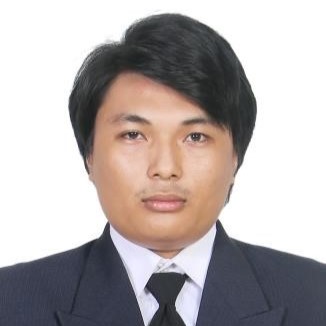
Rioneli Ghaudenson
Universitas Indonesia
Rioneli Ghaudenson is a researcher at Universitas Indonesia with a background in environmental engineering. His research focuses on the effects of climate change on water and sanitation services, monitoring systems, and climate resilience assessments on water utilities in rural areas. Currently participating in a project in collaboration with the University of Technology Sydney and the University of Bristol to assess the current community-managed rural water supply system climate resilience in Indonesia. This project also aims to develop an applicable climate resilience monitoring and assessment tool that can be integrated into the national water supply monitoring and evaluation system to build a climate-resilient national water supply system.
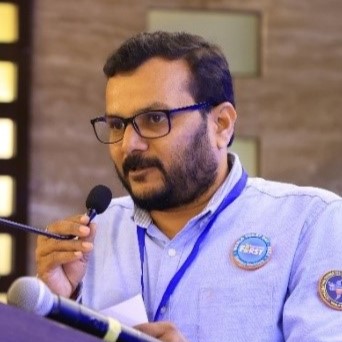
Samir Ranjan Dash
Centre for Advocacy and Research (CFAR), New Delhi
Samir Ranjan Dash is the State Lead for the Water for Women-supported project based in Bhubaneswar. Over the last 16 years, he has worked on issues related to water quality, monitoring, and community engagement. In his current role, he provides technical guidance to the team, manages stakeholder partnerships across Odisha, and maintains project oversight. Samir has developed and implemented various appropriate strategies, assessments, studies, and systems, including microplanning and ward-level plans for the project's diverse needs. He has developed a Saniwall Monitoring tool to facilitate the community monitoring process and has undertaken training and capacity-building initiatives. Additionally, Samir has developed local resources, such as a sanitation sub-committee and community feedback groups, illustrating his commitment to managing the project comprehensively and engaging with the community.
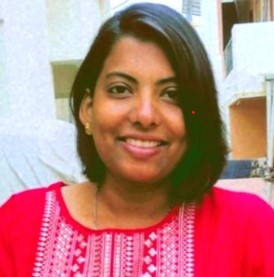
Sandhya Sreekumar
MIT WPU
Sandhya Sreekumar, Ph.D., is an Assistant Professor at Maharashtra Institute of Technology World Peace University (MIT WPU). She is currently working on a two government funded projects focusing on urban menstrual waste disposal behaviour and organic farming, has published work in reputed journals and co- edited a book with the Taylor & Francis Group. She received her Ph.D. in Public Administration from Pandit Deendayal Petroleum University, India. She has worked as a Research Officer at the Adani Institute of Infrastructure Management, India. She served as a Research Associate while contributing to two projects, at the Indian Institute of Management Ahmedabad (IIMA). Her research focuses on urban governance, water and sanitation services and local administration.
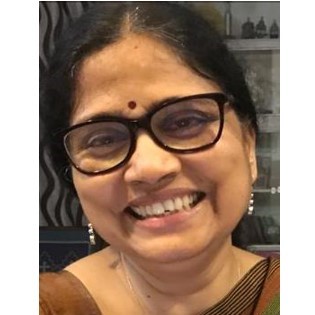
Sanghmitra Acharya
Jawaharlal Nehru University, New Delhi
She is a professor at JNU and teaches courses including urbanization and public health, research methodology. She was a Visiting Fellow at CASS, Beijing; Ball State University, USA and UPPI, Manila; East West Center, Honolulu and University of Botswana. She was awarded Asian Scholarship Foundation fellowship in 2005; and Shastri Indo-Canadian Institute Grant in 2019. She has travelled to Sri Lanka, Bangladesh, Germany, The Netherlands, UK, USA, Canada, Thailand, Belgium and Finland for academic purposes. Her published work includes ‘North-Eastern States of India-Some Dimensions of Public Health’ (2013) {Academic Publications}. Marginalization in Globalizing Delhi- Issues of Land, Labour and Health’ (2017), ‘Health, Safety and Well-Being of Workers in the Informal Sector in India- Lessons for Emerging Economies’ (2019); and ‘Caste, COVID and Inequalities of Care- Lessons from South Asia’ (2022), ‘Mapping Identity-induced Marginalisation in India - Inclusion and Access in the Land of Unequal Opportunities’ (2022) Springer; and What We Owe To The Sanitation Workers (Academic Publishers, 2023).
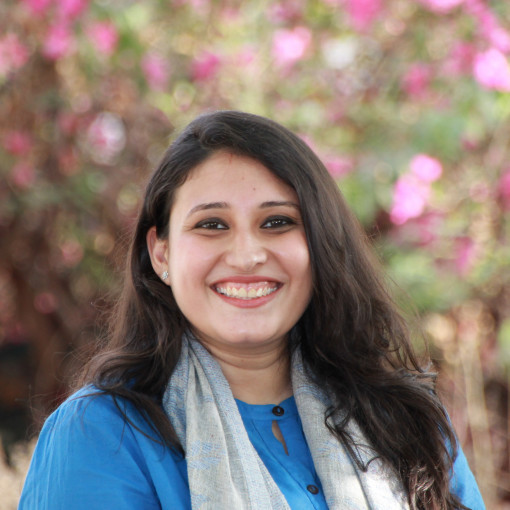
Saubiya Sareshwala
CWAS, CRFD, CEPT University
Saubiya Sareshwal is an Urban Planner with infrastructure specialization from CEPT University and holds a Bachelor’s degree in Civil Engineering from LJ Institute of Engineering & Technology. Currently she is working at CWAS as a Research Associate. She has experience in various aspects of municipal finance like budgets, investment planning, property tax, and gender budgeting. She is currently exploring the idea of shadow credit rating for urban local bodies and climate finance. She also works in the water sector, offering city-level support in preparing water-secure and water balance plans. Her areas of interest include financing urban development, climate finance, and participatory WASH governance.
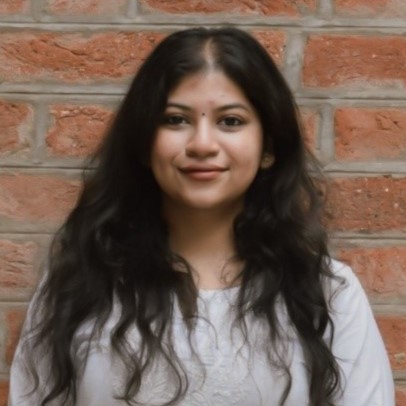
Sayantani Sikdar
Centre for Policy Research
Sayantani Sikdar is an Architect and Urban Planner. She is a Research Assistant at Centre for Policy Research under the Transboundary Rivers, Ecologies & Development Studies initiative, currently working on issues of urban planning for water bodies and interstate cooperation for river rejuvenation, with relevance of the European river rejuvenation experiences for the Indian context. She is gaining a strong grasp focusing on recommendations that can be catalytic in nature of urban planning.
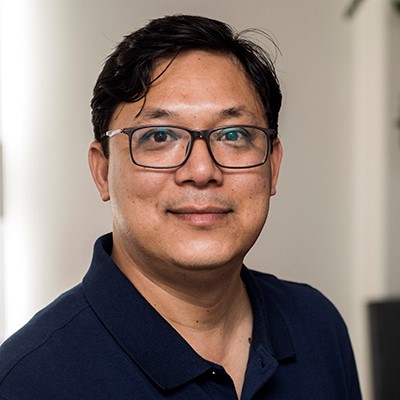
Shirish Singh
IHE Delft Institute for Water Education
Mr. Singh has more than 25 years of professional experience in management and delivery of WASH programmes and projects, mostly in low- and middle-income countries. He worked with international organisations, including universities, INGOs, private sector and UN agencies, with a range of responsibilities - programme/project management, advisory, research and strategic support with a focus on water, wastewater, faecal sludge and drainage including socio-economic and financial analysis. He was involved in developing MSc in Sanitation/courses and is supporting in transferring MSc/courses to many Universities under the banner of “Global Sanitation Graduate School”. He is delivering several courses, conducting research and mentoring MSc theses on urban sanitation. He is also engaged in developing “Humanitarian Sanitation Hub” - an effort of Global WASH Cluster members bringing together all available knowledge on planning and implementing sanitation and faecal sludge management in emergencies on one single platform.

Subhagata Mukhopadhyay
Graduate School of Advanced Science and Engineering, Hiroshima University
I am an Architect who did bachelor’s degree from National Institute of Technology, Patna and did my Master’s degree in Urban Planning from School of Planning and Architecture, New Delhi (MPlan – in Urban Planning -Department of Urban Planning), my research during the time of Master’s degree was based on “ Resilient Urban Water Supply System for Cyclone Prone Urban Areas” and currently I am researching upon the “ Application of Passive Architecture Techniques in Residential buildings of Varied Climatic Zones of India, in order to achieve Thermal Comfort”
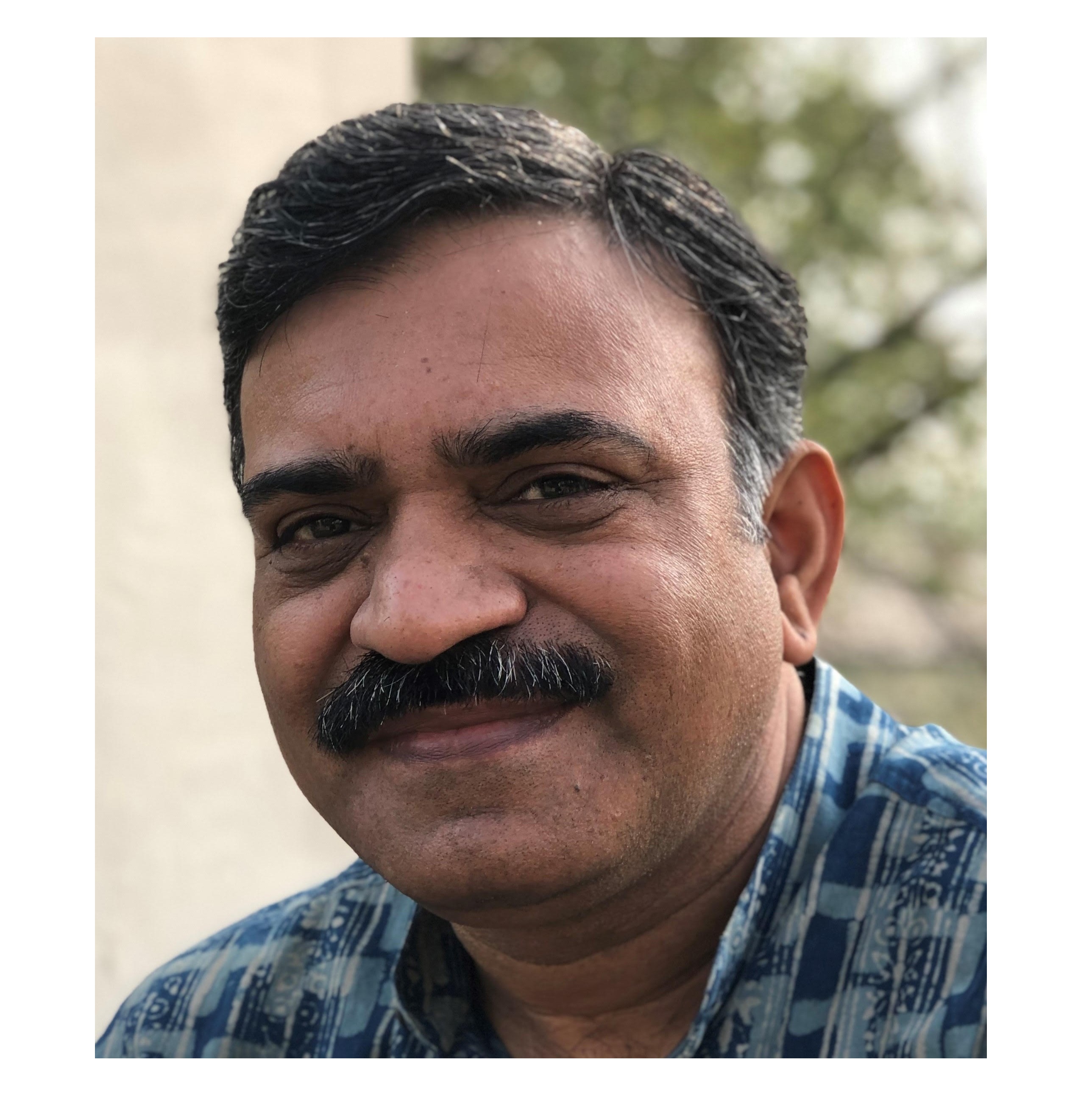
Suresh Kumar Rohilla
International Water Association (IWA)
Suresh Kumar Rohilla is Programme Lead at the International Water Association (IWA) Head Office based at London. His broad research interests are in water sensitive design and planning (including sanitation), environment management and sustainability for building resilience in resource constraint global south cities. His work has involved advising government agencies- and key sector organisations in India, Africa and South Asia. Before joining IWA during 2009-2022, he worked as the Academic Director – School of Water and Waste & Senior Director, Water Programme at the Centre for Science and Environment – a Delhi, India based think tank. He also has considerable experience of teaching both graduate and post graduate architecture and urban design/ planning students at universities in UK and India. He is recognised for his policy research and capacity development including a vibrant community of 7500+ practitioners supporting cities in resource constrained settings. He holds a PhD from Queen’s University Belfast, Northern Ireland and post graduate degree(s) in Geography and Planning.

Umra Anees
Centre for Science and Environment, Delhi
Umra Anees is an Urban Planner graduated from School of Planning and Architecture, Delhi in 2018. She is currently working as a Programme Officer at Centre for Science and Environment (CSE) in research, advocacy and capacity building for various themes under used water management and reuse and resource recovery. She has 7 years of working experience in the field of urban development, having a good exposure in Solid waste management, WASH and slum upgradation. She has previously worked at Centre for Urban and Regional Excellence (CURE) and National Institute of Urban Affairs (NIUA) on projects like Improving access to taps and toilets- Noida slum, Swachh Bharat Mission Exposure workshops and Sanitation Capacity Building Platform.
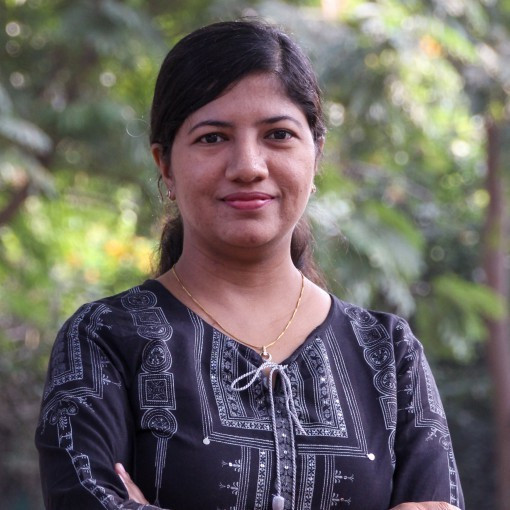
Upasana Yadav
CWAS, CRFD, CEPT University
Upasana Yadav has a Masters in Planning (Infrastructure) from CEPT University, Ahmedabad, and a Bachelors in Civil Engineering from MS University, Vadodara. She is currently working as a Program Lead at CWAS. She has extensive experience in WASH and urban development sector. She leads CWAS’s work in implementation of city sanitation plans, WASH improvement planning tools, and innovative financing mechanisms like development impact bonds and blended finance mechanism. She also has experience in water security, performance assessment systems, public finance and business models. She has worked with governments and sector partners for planning and implementation of WASH programmes.
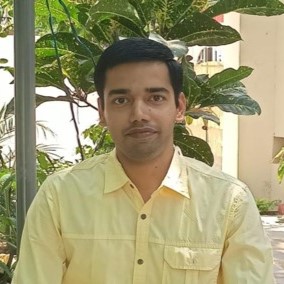
Vidat Choudhary
Manipal University, Jaipur
I am currently a first-year Master of Technology student in Environmental Engineering at Manipal University, Jaipur. I completed my Bachelor of Technology degree in the Civil Engineering department at JK Lakshmipat University, Jaipur.
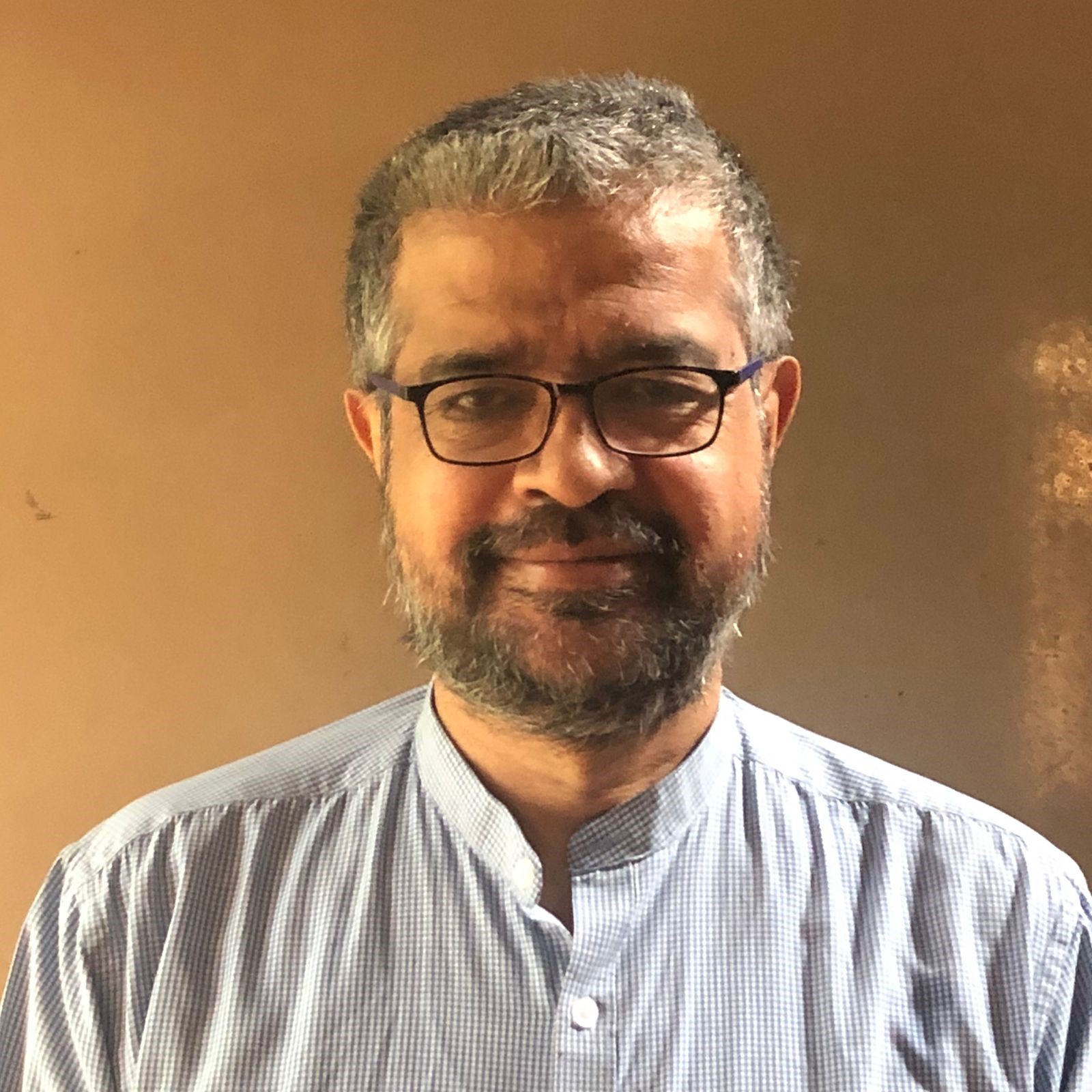
Vishwanath S.
Biome Environmental Trust
Vishwanath is a Civil Engineer and Urban Planner with 36 years of experience in the water and wastewater sector. His focus is on works from the policy to the implementation of projects around rainwater harvesting, groundwater management, wastewater reuse and sustainable water management

Xerxes Rao
Urban Management Centre
Xerxes Rao, Head of Urban Planning at Urban Management Centre, has 16 years of diverse experience in urban development, governance, and infrastructure projects. His extensive career includes collaboration with multilateral institutions, central and state governments, para-statal agencies, and urban local bodies. Xerxes provides technical support to the Ministry of Housing & Urban Affairs, with a particular emphasis on converging the Deendayal Antyodaya Yojana-National Urban Livelihoods Mission (DAY-NULM) and Swachh Bharat Mission (SBM), including initiatives related to Self-Help Groups (SHGs). His expertise extends to the integration of women led community-driven efforts, reflected in projects emphasizing community participation, urban governance, and infrastructure development. Xerxes, a guest faculty at LBSNAA and lecturer at institutions like Xavier’s University Bhubaneshwar, has degrees in architecture and project management from Vallabh Vidyanagar and the University of Stuttgart, Germany. He holds a diploma in project management from IIMA.
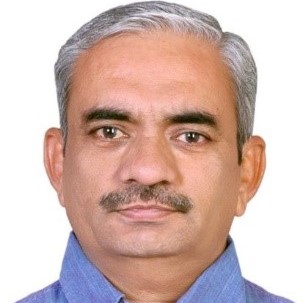
Yogesh Jadeja
Arid Communities and Technologies
Dr. Yogesh Jadeja is a founder director and trustee of Arid Communities and Technologies (ACT), a Bhuj-Kachchh based organization. He has total about 30 years of experiences of working on Ground water management aspects in Semi-Arid Regions of country. By profession he is a geologist and has completed his Masters and Doctorate from M S University, Baroda (Gujarat). His Views. Articles and synopsis have been featured in many of the International and national journals and he has presented his thought, endeavour and approach in many of the International Seminar in the Foreign countries and in India as well. He is the member of International Association of Hydrologist and also has given his services as Working Group member of Ground Water in Planning Commission (GOI). His vision is to Make Ground Water Secure and Sustain through Participatory approach and to Create a Modal which can be emulated.
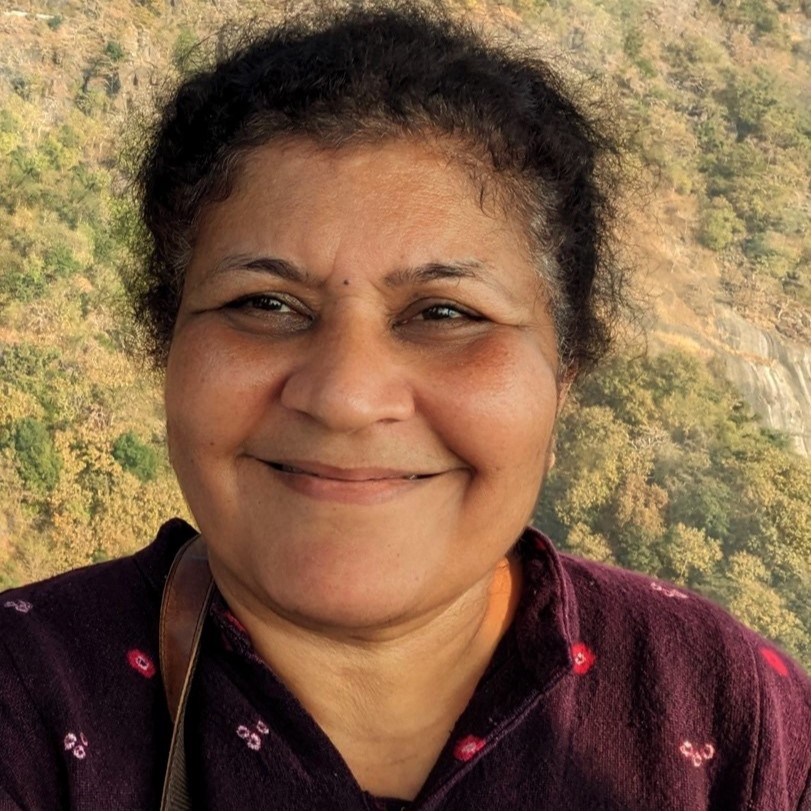
Alka Palrecha
People in Centre, Palrecha
Alka Palrecha has co-founded “People in Centre” in Ahmadabad, India, which is a consulting service organisation engaged in developmental works throughout India in partnerships with non-profits and governments. She has worked with urban and rural communities for community-based management of water resources and services for the last two decades. Some of the issues she worked on included coastal salinity mitigation, wastewater reuse, drinking water provision and quality and irrigation management. She holds a PhD degree in Urban and Regional Planning from the CEPT University, Ahmedabad, Gujarat. She was a Humphrey Fulbright Fellow at the Massachusetts Institute of Technology in the Department of Urban Studies and Planning.
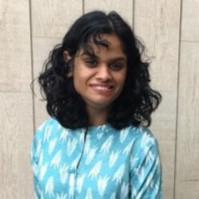
Amita Bhakta
Visiting Scholar at University College London
Dr. Amita Bhakta is a consultant and academic from the UK specializing in equality, non-discrimination and inclusion in WASH with 10 years’ experience in the sector. A gender expert, Amita is co-lead of the leave no-one behind theme at the Rural Water Supply Network and is currently a Visiting Scholar at University College London. Amita was the first Gujarati woman with Cerebral Palsy to complete her PhD at Loughborough University on the WASH needs of perimenopausal women, through which she began to engage with the issue of incontinence through her fieldwork in Ghana. Amita has explored incontinence and WASH through Elhra-funded research on the experiences of older people living with incontinence and their caregivers in humanitarian settings including cyclone-affected areas of Malawi and refugee camps in Ethiopia. Amita has also worked with colleagues to write and publish guidance on supporting people living with incontinence in low- and middle- income countries.
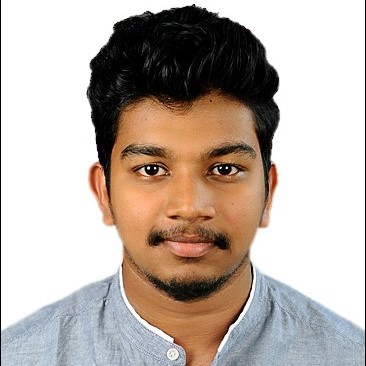
Arjun K
WaterAid India
Arjun K, a Specialist in Hygiene, Behavior Change, and WASH in Institutions at WaterAid India, having over 5 years of expertise in the development sector. Formerly a Zila Swachh Bharat Prerak with Tata Trust and later part of UNICEF's WASH section in Chennai and Assam, he played a crucial role in diverse WASH initiatives and humanitarian responses to floods. Arjun's strategic approach and hands-on experience have been instrumental in program success. Currently contributing to WaterAid India, he is dedicated to positive change, impacting individuals and communities with a passion for community development.
Boka Rochill
IPE Global, Delhi
Boka Rochill is a young Urban Professional whose passion converges at the crossroads of— State Capacity, Hill Urbanisation, and City Systems, among other dynamic areas. As an Urban Infrastructure Analyst at IPE Global, he is currently providing technical support and assistance on the Innovations for Reducing Plastic Waste in India (inREPLACE) Project-around driving circular systems focusing on Blended Finance and strategic partnerships; besides working on the Khulna Wastewater Masterplan, 2023. Prior to joining IPE Global, Boka has worked briefly with the Kohima and Dimapur Municipal Council, both under the administrator’s office on Solid Waste Management and bolstering institutional capacity. Boka holds a Master’s Degree in Urban Policy & Governance from the Tata Institute of Social Sciences (TISS) Mumbai, complemented by a Bachelor’s Degree in Civil engineering from the Jawaharlal Nehru Technological University, Hyderabad (JNTUH).
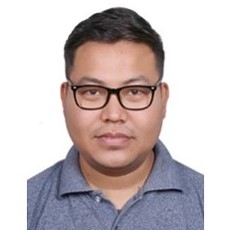
Buddha Bajracharya
Environment and Public Health Organization (ENPHO)
Mr. Buddha Bajracharya, an experienced professional with over a decade of expertise in Urban Sanitation, WASH, and Emergency Response, currently serves as the Program Coordinator at Environment and Public Health Organization (ENPHO) in Nepal. Since 2017, he has adeptly managed diverse projects, collaborating with various partners and demonstrating proficiency in proposal development, research, and project execution. Mr. Bajracharya excels in mobilizing diverse teams and providing crucial support to municipalities for implementation of safe urban sanitation initiatives. His multifaceted skills include advocacy, coordination, and networking with diverse stakeholders and partners, coupled with effective team management. He also delivers training sessions on critical topics such as FSM, CWIS, Cholera/AWD Preparedness, E-WASH, HWTS, and SRHR for Young People. Commencing his professional journey as a Project Assistant at ENPHO in 2013, he holds a Bachelor’s degree in Public Health from Purbanchal University, along with dual Master's degrees in Executive MBA from Pokhara University and Sociology from Tribhuvan University.
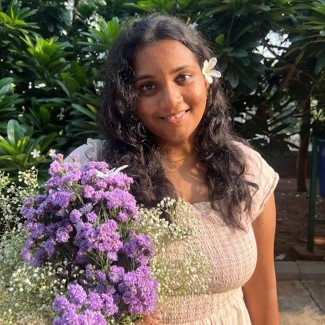
Harshini Gumudavelly
School of planning and architecture Vijayawada
As an upcoming urban planner, I am passionate about creating sustainable, equitable, and vibrant communities. With a deep understanding of urban design, transportation, housing, and land use policies, I am well-equipped to tackle the challenges facing our cities. I am committed to promoting social justice, environmental sustainability, and economic development in all of my planning projects. With a keen eye for detail and a passion for innovation, I am excited to embark on a career in urban planning and make a positive impact on the world around us.
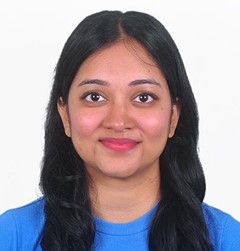
Sapna Manjunath
BORDA South Asia
Sapna, a recent graduate from the Faculty of Planning at CEPT University, is a dedicated urban planner with a specialization in Water, Sanitation, and Hygiene (WASH). Currently associated with BORDA South Asia, Sapna's professional journey revolves around urban water management with a keen focus on climate resilience and addressing gender inequality. Her academic foundation provides her with a robust understanding of planning principles, while her hands-on experience at BORDA South Asia has honed her skills in practical, sustainable solutions. Sapna's passion lies in creating resilient urban water systems that not only mitigate the impacts of climate change but also address the often-overlooked gender disparities within the field. With an unwavering commitment to creating inclusive and sustainable urban environments, Sapna strives to contribute meaningfully to the intersection of urban planning, water management, and social equity.

Karan K
School of Planning and Architecture, Vijayawada
A passionate professional dedicated to sustainability, I am a Policy and Research Analyst at Environment Design Solutions in Delhi, specializing in energy efficiency programs across India, Bhutan, and Sri Lanka. Previously, at AIILSG, Hyderabad, I contributed to sanitary manpower assessments and Swachh Bharat Mission initiatives in Tirumala, Tirupati, and Chittoor. In my master's coursework, I crafted Local area plans, master plans, and development plans across diverse Indian geographies like Alappuzha, Bangalore, South Goa, and Belagavi. My work spanned sectors such as Water resources, Land use management, Disaster vulnerability and risk assessment, Infrastructure assessment, Climate change, and Energy efficiency, reflecting my commitment to holistic sustainability practices and innovative solutions
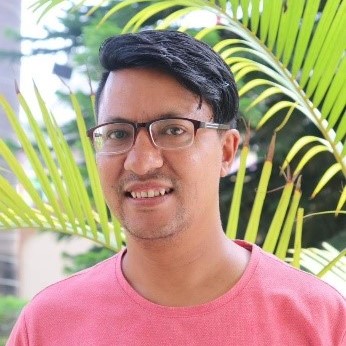
Keshab Shrestha
Environment and Public Health Organization
I am working as a Program Manager at ENPHO with over 17 years of experience in the development sector. Currently, I lead two projects: "Integrated Urban Water Management as a Core Task of Municipal Services" and "Rising for Rights: Strengthening Civil Society Networks in South Asia to achieve SDG 6." Previously, I led the WASH components of USAID's "Suaahara II: Good Nutrition Program." My expertise lies in managing WASH projects that seamlessly integrate with diverse sectors such as health, nutrition, education, climate change adaptation, and disaster risk reduction. I have Armed with a master’s degree in environmental science from Tribhuvan University, Nepal, I am adept at critical aspects of project management, including planning, implementation, monitoring and evaluation, and documentation.
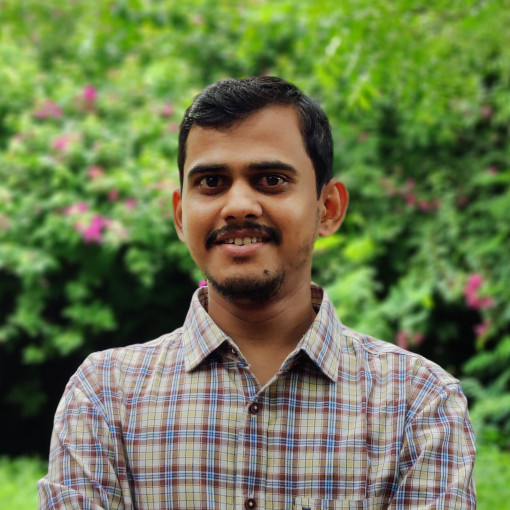
Manish Kulkarni
CWAS, CRFD, CEPT University
Manish is associated with CWAS since 2022. He has attained his bachelor’s degree in urban planning from the College of Engineering, Pune, and a Master’s degree in the same domain from Visveswaraya National Institute of Technology, Nagpur. He is working in the field of sanitation for more than two years. He is currently associated with CWAS in the capacity of Research Associate to support Swachh Maharashtra Mission and is stationed at Nashik Division. His primary interests include inclusive development of the rurban areas, community-based solid waste management, SLWM of rural areas, resilience of urban infrastructures, and green building techniques. While in CWAS, he is providing technical support to the ULBs for Faecal Sludge and Septage Management (FSSM). He wants to evolve as an infrastructure expert in due course of time.

Mansour Fall
Bill and Melinda Gates Foundation (BMGF)
Engineering Manager where he became familiar with construction project and hotel renovation projects, as well as maintenance management. of building and facilities. After four years he joined LG Electronics as a service center manager where he had to familiarize himself thanks to LG academy, with sales and marketing techniques, but also to familiarize himself in a multicultural environment (Koreans, Indians, Lebanese). Five years later, he joined the United States Embassy as a maintenance supervisor to set up a preventive maintenance plan, but also to familiarize himself Thought to the foreign service institute, a training with supervision and management skills. (Supervision skills level 1-2 and beyond basics). Training that he completed afterwards with training as a facilitator and facilitator trainer in a situational leader at the Blanchard Institute at Washington Four years later, he left the embassy to launch his own company SAREEV specializing in energy saving and renewable energy where he had the opportunity to do training in energy audit and also in clean development mechanism in Dhele with Angelic international ltd: One year later, he joined the OP project with DELVIC where he had to familiarize himself with Waste to energy specifically waste treatment and recovery units and sanitation with participation in the technical committee which set up the three standards on sanitation: ISO 31800; ISO24521, ISO3500. 7 years later, Mansour joined the FSMA as liaison since March. Since 6 months he is working as an independent consultant for BMGF. Mansour is curious, passionate about sociology and living together, is also a martial arts teacher and also VicePresident of the African Federation of Vovinam.

Mendy Shozi
BORDA South Africa
Mendy Shozi is an Environmental Scientist (MSc.) who works in the water and sanitation sector as a Project Manager for the Bremen Overseas Research and Development Association (BORDA) South Africa office. Her work focuses on citywide inclusive sanitation, circular economy and resource recovery.

Ninad Deshpande
CWAS, CRFD, CEPT University
Ninad is an Urban Planner graduated from Govt. College of Engineering Pune (COEP) working in the sector of sustainable sanitation. Currently he is involved in providing technical support to 80 ULBs in Pune Division for managing faecal sludge. H is also involved in providing technical support for 'City Wide Inclusive Sanitation'. His key areas of interest include Rural Development, equitable urban sanitation and rural water management.
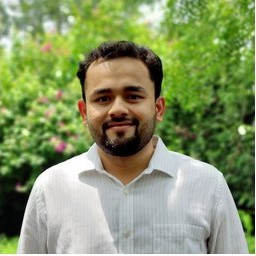
Omkar Kane
CWAS, CRFD, CEPT University
Omkar has been associated with CWAS since 2016. He holds a Master’s degree in Infrastructure Engineering Design from CEPT University and has completed his graduation in Civil Engineering from Pune University. He has multidisciplinary consulting experience in the field of urban and infrastructure planning, project implementation, and public policy. At CWAS he has worked directly with Sinnar Municipal Council in making the city ODF and moving towards ODF++. Currently, he is involved in the overall coordination, monitoring, and management of ODF++ activities for ULBs under Pune Division in Maharashtra and also supports the state unit in a technical capacity. He has previous experience in design of water supply and sewerage projects, the Pradhan Mantri Awas Yojna, and transport system planning.
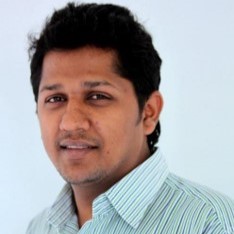
Paresh Chhajed-Picha
Indian Institute of Technology Bombay
Paresh is a doctoral researcher at IIT Bombay with over a decade of experience in the WASH sector. He is also a moderator of the SuSanA discussion forum since 2020. His doctoral research analyses the development in the sector at the National level, and the determinants that create an enabling environment for planning and implementation of innovative sanitation interventions at the sub-national levels in India. Paresh holds a master’s degree in urban and regional planning. He was part of the C-WAS team for 4 years and worked on municipal finance, city sanitation planning, development of tools, amongst others. In the past he has also worked on urban planning, environment, transportation, and housing.
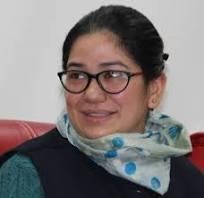
Sakshi Sahni
Guru Nanak Dev University
Dr. Sakshi Sahni is an Assistant Professor in Guru Ram Das school of planning, Guru Nanak Dev University, Amritsar, Punjab, India. She has done her B.Tech (Urban and Regional Planning) from Guru Nanak Dev University, Amritsar and Master of Infrastructure Planning from CEPT Univeristy, Ahmedabad, India. She has 12 years of teaching experience and 13 years of research work. Her PhD work comprises of Urban history with focus on urban design, urban form. The subjects of her interest she teaches are research methodology, urban history, planning for utilities, with different kind of studios study of town, Master plan, Infrastructure plans etc.
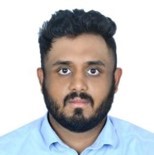
Saman Jain
McKinsey & Co.
A professional of the urban realm, Saman Jain works across sectors of planning, design and implementation of projects, policies and programs in the realm. In the short term, Saman has been focused on delivering meaningful impact for public sector clients while in the long term, he is focused on creating meaningful change through planning and behaviour transformation advances.
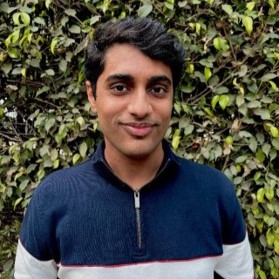
Shaorya Sood
University School of Architecture and Planning
Shaorya Sood is a Fifth-year student of Architecture. His passion for sustainability has been a driving force for most of his academic pursuits. Shaorya shares a deep-rooted interest in research and views the urban setup from the lens of building resilient communities. He is a passionate individual motivated by the need for equitable design, social justice and participatory planning. He is determined to bring design activism and sustainability to the forefront in all his professional endeavors. As an aspiring urbanist, Shaorya often views the Sustainability Development Goals as progress markers that need to be viewed through an orientalist lens. India, owing to its population struggles with providing even basic sanitation facilities to its citizens. As an introduction to the field of WASH, Shaorya reviews the policies, standards, and tools developed to assess WASH usability in state-funded schools of New Delhi.
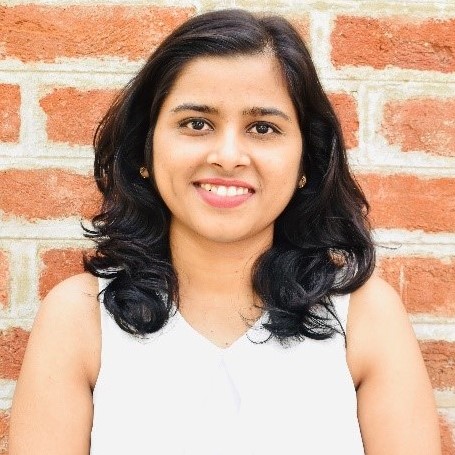
Smita Anil Hake
CEPT University
I am a passionate infrastructure planner and architect from Mumbai, deeply committed to continual learning and growth. My focus lies in urban development, where my dedication to research and policymaking profoundly influences city landscapes, addressing real-world challenges, and elevating the quality of life and economic prosperity for communities. My motivation originates from a strong passion for investigating these vital domains and devising creative answers for urban infrastructure challenges within cities. I am actively seeking opportunities to contribute to safer, more vibrant communities, leveraging meticulous research and advanced planning to accommodate sustainable growth.
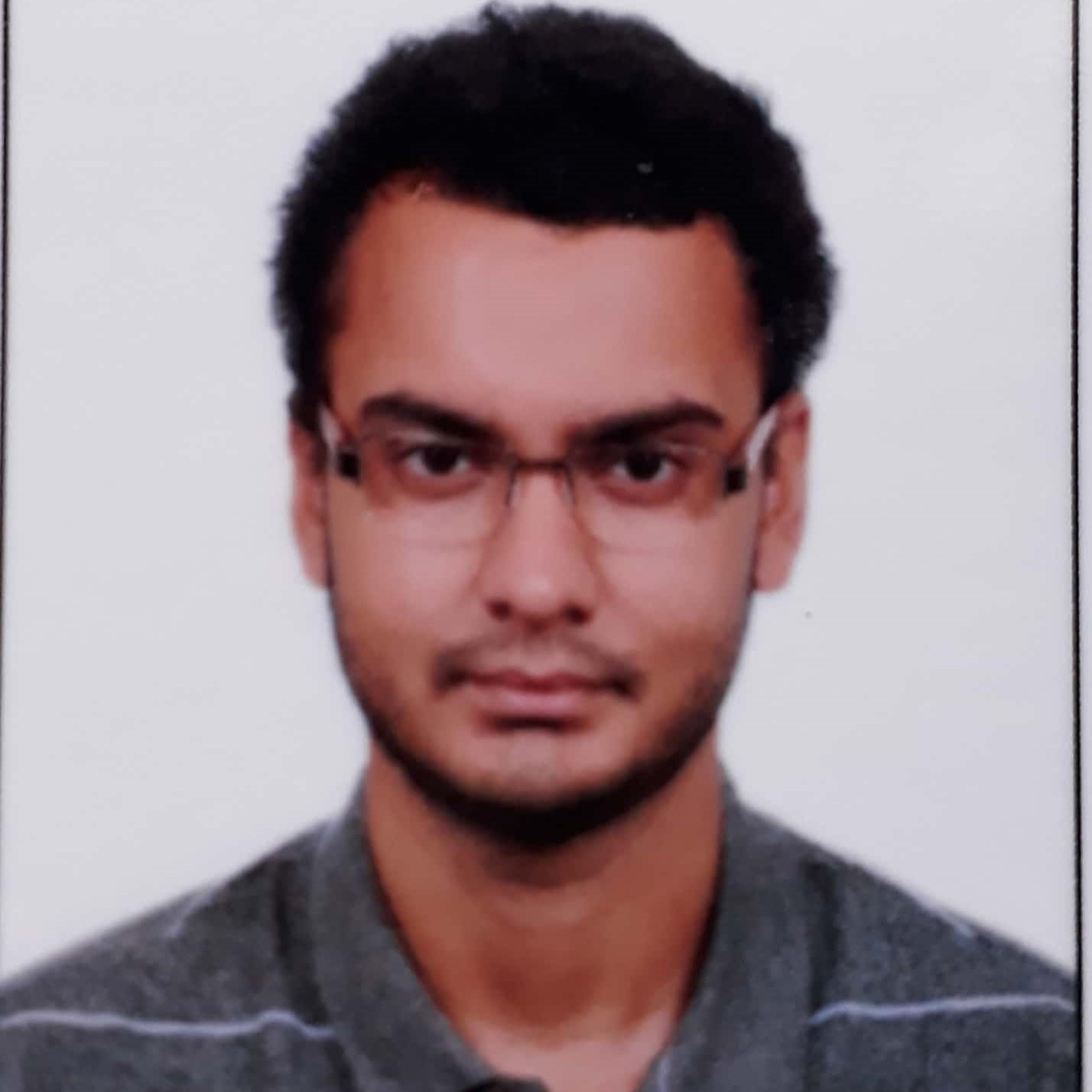
Soomrit Chattopadhyay
Centre for Sustainable Development,Gokhale Instiute,Pune
Soomrit is a young professional in the environment and sustainability sector. He has a Bachelors in Chemical engineering and recently completed his Masters in water policy and governance from Tata Institute of Social Science,Mumbai.He has previously worked with TCS and Grant Thornton ESG and is currently working as Research Associate at Centre for Sustainable Development in Gokhale Institute ,Pune. His interests lie in water management,carbon markets and decarbonization and energy.
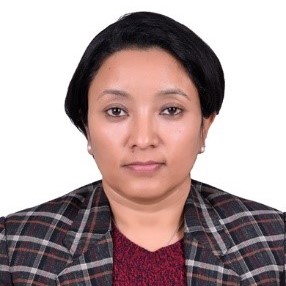
Srijana Karki
Environment and Public Health Organization (ENPHO) / Fresh Water Action Network South Asia (FANSA) Nepal
Srijana Karki is a practitioner with significant experience of more than 10 years in the development sector in various leadership roles. She is passionate about making change happen to address inequalities and skilled in Water, Sanitation and Hygiene (WASH), gender, advocacy, behaviour change and sustainability, programme monitoring and evaluation, and capacity building in both humanitarian & development contexts. Her skills in leading project and programme strategies, together with a deep commitment to enable and build leadership at all levels of the organization, have led to the award of “ENPHO Employee of the Year 2020”, in recognition of hard work, dedication and contribution to organizational development. She was rewarded by the Government of Nepal with the “Jana Sewa Ratna Shree” medal, presented on Nepal Constitution Day (AD 2022 / 2079 BS) by the President of Nepal, for contributions to social work for sustainable development. Ms. Karki is working as a Senior WASH and Gender Equality and Social Inclusion Officer in the Environment and Public Health Organization as well as National Coordinator of Freshwater Action Network South Asia (FANSA) Nepal Chapter with responsibilities to handle different projects. Ms Karki has a double master’s degree in Rural Development (RD) and Gender Studies from Tribhuvan University, Nepal.
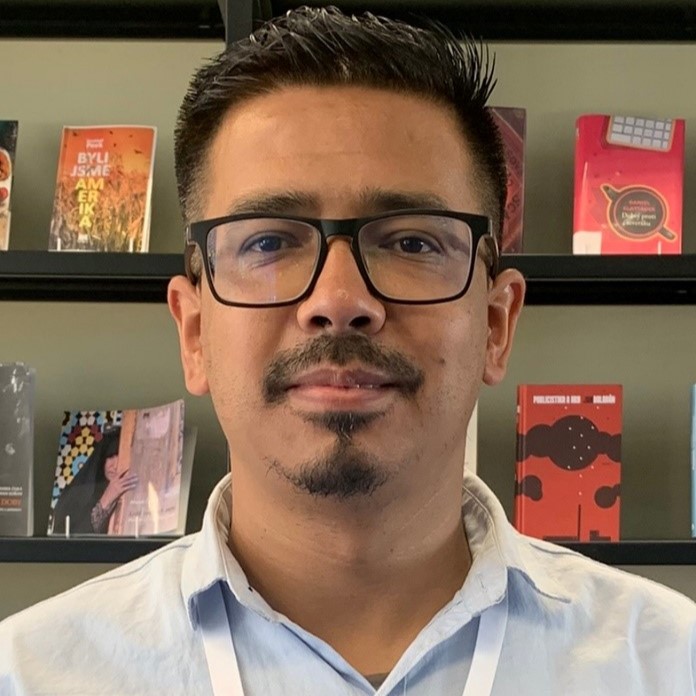
Suman Dhun Shrestha
Intellectuals Center
Suman is an environmental engineer with more than a decade of working experience in water sanitation, circular economy, disaster, and various projects. He has worked with organisations and agencies such as Kathmandu University, UNDP, Welthungerhilfe, ENPHO, WWF, North Tyneside Council (UK), Practical Action Consulting, Tribhuvan University; and also founded Intellectuals Center– a research & development initiative. He played a key coordinating role in transferring sanitation education and training to three Nepalese Universities under the Global Sanitation Graduate School framework, which can be marked as an outcome of Bill & Melinda Gates Fellowship Award in 2018, undertaking sanitation Training of trainers course at UNESCO IHE-Delft, Netherlands. During the Nepal Earthquake in 2015, Suman worked to provide sanitation and hygiene facilities to 600 affected families in rural areas. Suman led the Regional Policy Initiative in Circular Economy, working together with institutions in India, Bangladesh, and Vietnam, supported by the Stockholm Environment Institute.

Supriya Poduval Pal
PDPU
Dr. Supriya Pal is an engineer graduate specialized in Electrical and completed her MBA in human resource. She has sucessfully completed her Ph D on the topic "Work Life Balance of Millennial Males in the private sector". She has two years of working experience in utility sector (Torrent Power) as assistant manager in HR department. She is teaching the management subjects since last three years. She has done research project with IIM Ahmedabad. She had presented paper in national and international conference in the topic like maternity leave and training effectiveness. She is currently involved in various international project which deals with women empowerment and women leadership.
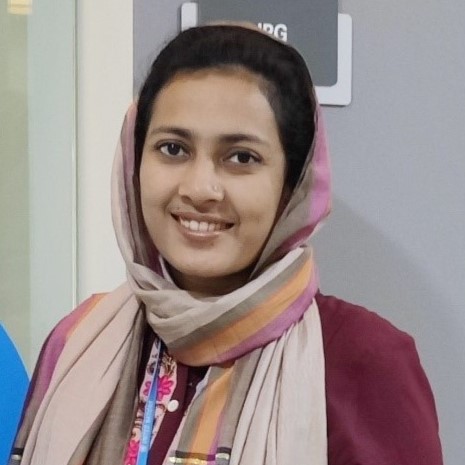
Tazrina Habib Ananya
International Training Network Centre of Bangladesh University of Engineering and Technology
Tazrina Habib Ananya, working as a Knowledge Management Specialist at ITN – BUET, which is a Centre for Water Supply, Sanitation and Waste Management under Bangladesh University of Engineering and Technology (BUET). Previously she worked as a WASH Officer at UNICEF Bangladesh. She received her bachelor’s degree on Urban and Regional Planning from Bangladesh University of Engineering and Technology (BUET) and conducted MSc. in Geographical Information Science (GIS) from the University of Manchester, UK. During her work experience in the past 10 years, she was equipped with the well-rounded skill set and practical knowledge as a professional in program planning, implementation, and monitoring in the field of Water Sanitation and Hygiene (WASH).
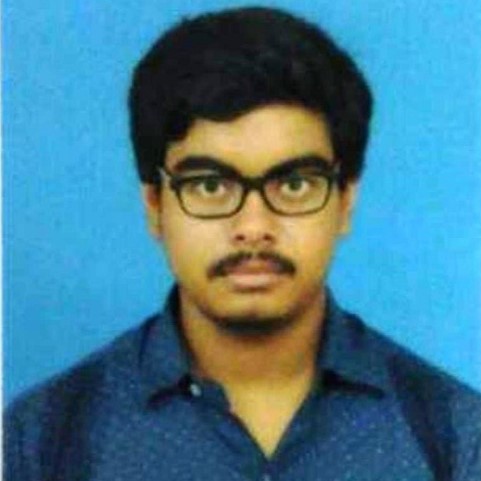
Tuhin Palit
School of Planning and Architecture, Bhopal
I am a final-year Bachelor of Planning student at the School of Planning and Architecture Bhopal. Throughout my undergraduate journey, I have demonstrated a keen intellect and passionate commitment to exploring innovative solutions for pressing urban challenges. My upcoming poster presentation is based on my ongoing thesis work, focusing on sanitation, equity, and infrastructure development. As an emerging professional in urban planning, I will try to contribute meaningfully to the discourse on urban issues, with a dedication to creating socially and environmentally sustainable cities. I eagerly anticipate sharing my insights and engaging with fellow participants at the Global South Academic Conclave to foster collaborative approaches to urban challenges.
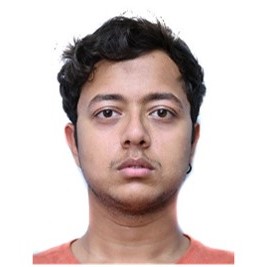
Viraj Joshi
Environmental Management Centre Pvt. Ltd.
Viraj Joshi, an architect and urban planning postgraduate, dedicates his expertise to advancing Indian cities through sustainable practices. With a specialization in infrastructure, he passionately addresses pressing issues like circular economy, climate change, and WASH. Committed to elevating the quality of urban life, Viraj envisions a future where India sets a global example of development redefined. As an active urban professional, he keenly observes the pulse of communities, channeling his insights into transformative projects. Viraj's goal extends beyond improving existing conditions; he aspires to imbue projects with a new identity, creating spaces that not only meet practical needs but also inspire a collective passion for sustainable living. His mission is to contribute significantly to the journey of urban sustainability, steering India towards a brighter, more responsible future.
